

Types of Tour Guides: A Comprehensive Guide for Beginners
- 2024-03-07 2024-03-07
Welcome to our beginner’s guide to the different types of tour guides! Whether you are planning to embark on a guided tour or considering a career in tourism, understanding the various types of tour guides can be immensely helpful. In this article, we will explore the main categories of tour guides and gain insights into their roles and responsibilities.
1. Local Tour Guides
Local tour guides are individuals who have an in-depth knowledge of a specific geographic area. They have a wealth of information about the local history, culture, and landmarks. These guides are ideal for exploring a city or region and can provide insider tips and recommendations.
Responsibilities of Local Tour Guides:
- Leading guided tours of specific landmarks, neighborhoods, or attractions
- Providing historical and cultural insights
- Assisting with language translation, if applicable
- Answering questions and providing recommendations
2. Adventure Tour Guides
Adventure tour guides are experts in outdoor activities and adventure sports. They lead groups on thrilling adventures such as hiking, kayaking, rock climbing, and more. These guides prioritize safety and possess specialized knowledge regarding the activities they offer.
Responsibilities of Adventure Tour Guides:
- Ensuring the safety of participants during outdoor activities
- Providing instruction and guidance on specific adventure sports
- Sharing information about the surrounding environment
- Preparing and maintaining equipment
3. Museum Tour Guides
If you find history and art fascinating, museum tour guides are the experts you need. They specialize in providing guided tours of museums, offering detailed insights into the exhibits, artists, and historical context. These guides possess a deep understanding of the artworks and artifacts on display.
Responsibilities of Museum Tour Guides:
- Conducting tours of museum exhibits
- Explaining the historical and cultural significance of artworks and artifacts
- Engaging visitors with interesting anecdotes and stories
- Addressing questions and encouraging discussion
4. Tour Directors
Tour directors, also known as tour managers or tour conductors, oversee the overall operations of a tour. They ensure that everything runs smoothly, from transportation and accommodation to scheduling and logistics. Tour directors are responsible for managing the itinerary and ensuring an enjoyable experience for the participants.
Responsibilities of Tour Directors:
- Coordinating transportation, accommodation, and meals during a tour
- Managing the itinerary and ensuring timely departures and arrivals
- Providing information about the destinations and attractions
- Resolving any issues or challenges that arise during the tour
5. Step-on Guides
Step-on guides are hired to assist tour companies or groups visiting a specific location. They provide local expertise and serve as guides while traveling on buses or other modes of transportation.
Responsibilities of Step-on Guides:
- Offering insights about local history and culture during transportation
- Pointing out landmarks and interesting sights along the way
- Coordinating with the driver and tour company
- Answering questions and enhancing the travel experience
No matter which type of tour guide you encounter or aspire to become, it is important to remember that their primary goal is to provide an engaging and enriching experience to their audience. Now that you are familiar with these different types of tour guides, you can choose the one that best suits your interests and embark on a memorable journey or even consider a career in the fascinating world of tourism.
We hope this article has been informative and valuable to you as a beginner. If you have any further questions or would like to share your own experiences with tour guides, feel free to leave a comment below!
Table of Contents
Related Posts
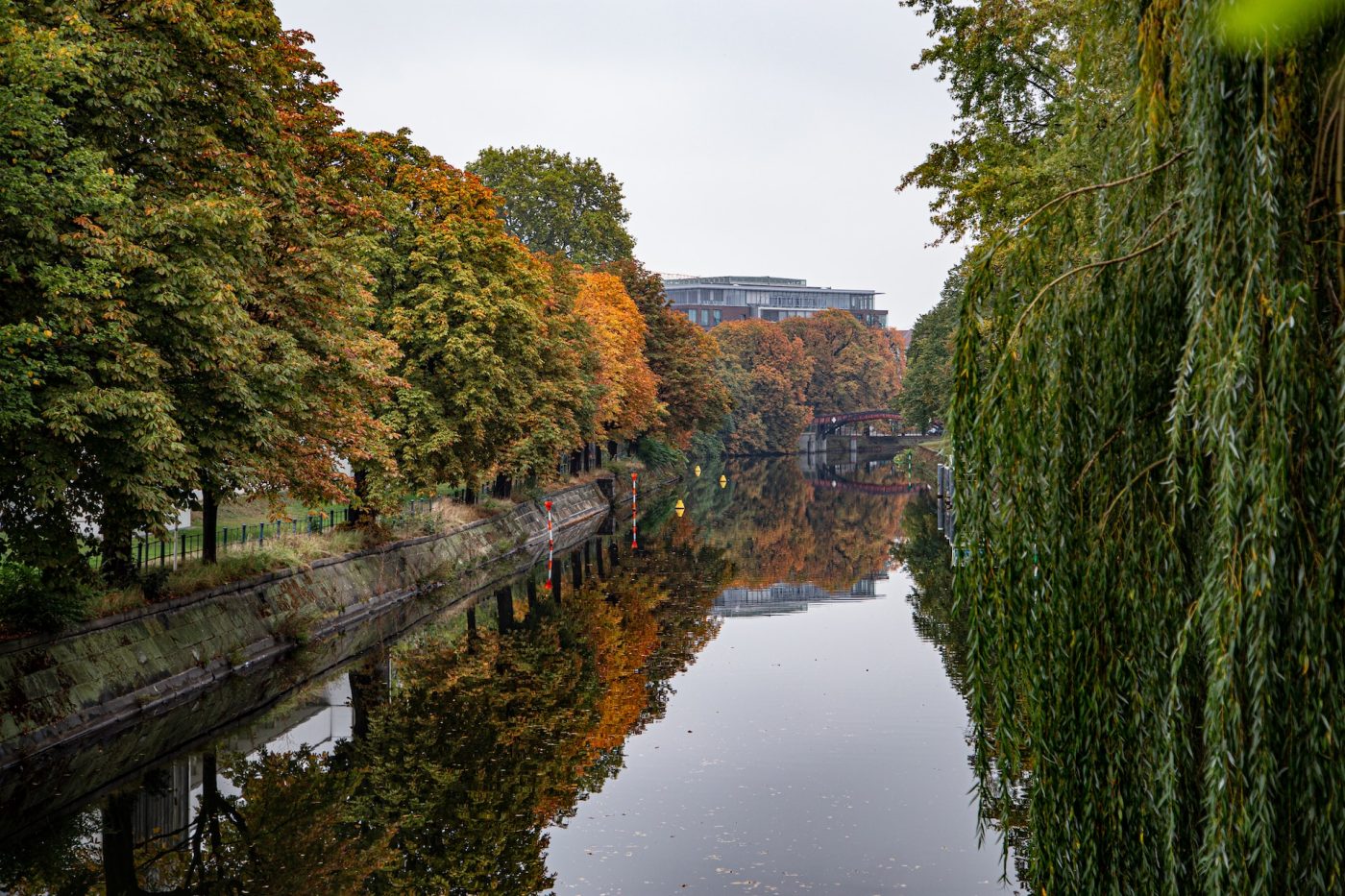
How Long Does it Take to Reach Sachsenhausen from Berlin?
If you are planning a trip to Berlin, Germany, you might be interested in exploring the nearby historical site of

Why is the Statue of Martin Luther in Berlin, Germany So Important?
One of the most iconic statues in Berlin, Germany is the statue of Martin Luther. Erected in his honor, this
Leave a Reply Cancel reply
Your email address will not be published. Required fields are marked *
Save my name, email, and website in this browser for the next time I comment.
Need help finding the right course?

What Are The Different Types Of Tour Guide?

Embarking on a career as a tour guide is like unlocking a treasure chest of opportunities to share stories, unveil hidden gems, and create memorable experiences for eager travellers.
It's a profession that transcends the boundaries of traditional careers, offering a dynamic and captivating journey into the world of exploration and storytelling.
In this article, we'll delve into the diverse and exciting types of tour guides that make this profession not just a job but a thrilling adventure.
Historical Storytellers: The Time-Travel Guides
Ever dreamt of taking a stroll through history? Historical tour guides are the time-travellers of the tourism industry. They weave narratives that transport visitors back in time, breathing life into ancient monuments, historic streets, and legendary landmarks. As a historical storyteller, you get to be the bridge between the past and the present, sharing tales that captivate and educate.
Nature Navigators: Guiding Through the Great Outdoors
For those who have a passion for the great outdoors, becoming a nature guide is an exciting choice. Whether leading hikes through lush forests, exploring serene national parks, or conducting wildlife safaris, nature guides are the custodians of our planet's natural wonders. It's a chance to connect people with the beauty of the Earth, fostering a deep appreciation for the environment.
Urban Explorers: Navigating Cityscapes with City Guides
City guides are urban adventurers, navigating bustling streets and vibrant neighbourhoods with a contagious enthusiasm for city life. From historical city tours to culinary escapades, these guides unravel the unique stories, flavours, and cultures that define each city. Becoming a city guide means showcasing the heartbeat of a metropolis, making every tour an urban exploration.
Art Aficionados: Guiding Through Cultural Masterpieces
If you have an art appreciation, becoming an art guide allows you to share your passion with others. Guiding through museums, galleries, and cultural exhibitions, art guides unveil the beauty and significance of masterpieces. It's an opportunity to ignite a love for creativity and contribute to the cultural enrichment of your audience.
Adventure Architects: Crafting Thrilling Experiences
Adventure guides are the architects of excitement, curating thrilling experiences for adrenaline-seeking travellers. From leading white-water rafting trips to organising mountain treks, these guides infuse the spirit of adventure into every journey. Becoming an adventure guide means transforming vacations into exhilarating escapades.
Culinary Connoisseurs: Guiding Through Gastronomic Delights:
Foodies unite! Culinary guides lead travellers on delectable journeys through the world of flavours. From street food markets to gourmet restaurants, these guides are the connoisseurs of local cuisine. Becoming a culinary guide means indulging in the joy of sharing culinary secrets and turning every meal into a memorable experience.
Becoming a tour guide is not just a job; it's an invitation to be a storyteller, an explorer, and a curator of unforgettable experiences.
Whether you're unravelling the mysteries of history, navigating the wonders of nature, or savouring the richness of different cultures, each type of tour guide contributes to the tapestry of travel.
So, if you're ready for a career that combines passion with profession, consider the opportunities waiting for you as a tour guide – where every day is a new adventure!
If you are interested in a recognised Tour Guide qualification, or have any questions you can book a consultation call with our expert advisor Brandon McLean, email [email protected] or call 01 892 0035 .
Get Insider Updates: Join Now!
Join our mailing list to receive the latest insights and exclusive content from your chosen department of interest
You may also like

Need help choosing the right course?
Choosing what to study can be a daunting task. Here at Portobello Institute, we have a team of dedicated experts to assist you at every step. No matter how big or how small your question is, we're here to help.
Our Faculty Experts
Our experts are on hand to support you to choose the course for the career you want.
If you prefer to send us a message with your questions, we're here to support you!
The 10 Types Of Tour Guides: Which One Will You Be?

Posted on Dec 11, 2022 at 09:12 PM
You’re about to embark on a new career. You’ve been doing research and found that many tour guide positions are available in cities worldwide. You love people and want to share your passion for your city, so it seems like a perfect fit!
So what do tour guides do? What kind of skills and training is needed? Let’s explore these questions and more.
What is a tour guide?
A tour guide is someone who leads a group on tour.
The term "tour guide" is also sometimes used to describe the person who leads a sightseeing tour of a historic building, site, city, or neighbourhood. A tour guide may be employed by a museum, historical society, or other organisation interested in preserving local history and culture.
Tour guides are often called "docents" or "those who show." In addition, they are sometimes called "tour directors" or "tourist escorts," but these terms also have other meanings.
Tour guides work primarily with tourists and visitors but may also work with locals interested in learning more about their city or town.
Tour guides can be found at museums, historical sites, and other locations that showcase unique elements of local culture. Some tour guides specialise in private individuals or specific groups, while others work with larger groups of tourists worldwide.
There are many steps to becoming a tourism guide; check out the 6 best steps to becoming a professional tour guide .

10 tour guide types, which one are you?
There are many kinds of tour guides around the world; some of the most popular categories of guides include:
1. The professional tour guide
The professional tour guide is the most common type of tour guide, and it's the primary type most people think of when thinking about a tour guide. It's usually a full-time job, but it can also be part-time or a side gig. They typically work with international tourists and are licensed international tourist guides.
2. The private tour guide
A private tour guide accompanies paying clients on tours for a fee but doesn't work full-time in the industry. Instead, they use their time off from work or school to make extra money by giving guided tours to tourists in their city or country. They can offer services based on their timetable as their managers.
3. The academic tour guide
This tour guide works at an educational institution such as a university or an art museum, giving tours to students, teachers, and other community members. Academic tour guides earn additional income by educating visitors and sales commissions on books, maps, and other merchandise sold during tours. They usually have an educational background, study galleries and cultural buildings, and are often fluent in many languages.
4. The freelance tour guide
A freelance traveller gives guided tours to tourists abroad on vacation or business trips. They're adventure lovers who love private cruises to nature and other places.
The most convenient thing about freelance operators is that they're their manager and director, have flexible hours, and can choose which client to take on.
5. The local tour guide
A local tour guide or escort works at a tourist attraction , such as an amusement park or zoo. They may also be employed by a travel agency that offers guided tours to visitors. Some local guides work independently and receive payment directly from their customers instead of through an employer.
6- The Traditional Guide:
The definitive guide is knowledgeable about the destination's history, culture, and sights and delivers a structured, fact-filled tour. They may use a microphone and headset to provide information to the group and incorporate interactive activities or demonstrations to engage the group.
7- The Cultural Guide:
The cultural guide focuses on the destination's traditions, customs, and way of life and provides an immersive experience for travellers. They may take the group to local markets, homes, or community events to give them a glimpse into the daily life of the people in the area.
8- The Adventure Guide:
The adventure guide leads active and physically challenging tours, such as hiking, biking, or kayaking. They are knowledgeable about the local terrain and wildlife and may provide instruction and equipment for the activities.
9- The Food and Drink Guide:
The food and drink guide focuses on the destination's local cuisine and beverage culture. They may take the group to local markets, restaurants, or farms to try the local specialities and learn about the ingredients and techniques used in the area.
10- The Local Guide:
The local guide is a native of the destination and provides travellers with a personalized and authentic experience. They may share their own stories, experiences, and the area's hidden gems and local secrets.
What kind of skills should a tour guide have?
Tour guides should have a lot of skills. They must have strong communication and social skills to communicate with the tourists and answer their questions about the city or country they visit.
Tour guides also need to be able to explain things clearly and precisely, so tourists understand what they are seeing. In addition, they should be friendly, helpful and easygoing because they will deal with many different people from different parts of the world.
They need to be organised, have good management skills and have an eye for detail to plan exciting and fun trips for everyone involved.
They should have good leadership skills because they will often entertain groups of people in busy cities or countries where a lot is happening at once.
Tour guides must be able to keep everyone together and make sure no one gets lost or separated from the group. To do this effectively, tour guides must be able to think quickly on their feet and come up with solutions if something goes wrong during the trip (like legal trouble or a mix-up with security systems)
If you’re interested in being a tour guide but don’t know where to start, here are some hospitality training courses in London .
Tourist guides play a particular part in every tourism experience ; they add their signature to the social aspect of getting to know a new region.
Related Articles
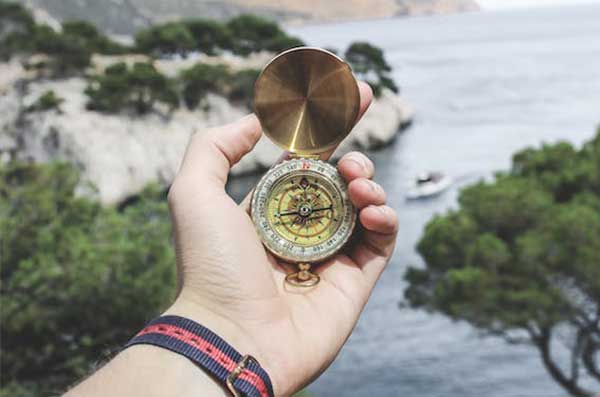
6 best steps to becoming a professional tour guide

Destination Management Is a Great Career. Here's Why

Exhibition Management: Tips For Planning Successful Exhibitions

9 Hospitality Ethics Every Professional Should Know
Related courses

Send Us A Message

Your poweful AI Trip Planner
Types of Tour Guides: Exploring the Diversity
Welcome to PlanTrips.net, where we unravel the fascinating world of travel and adventure! In this blog post, we delve into the realm of tour guides and showcase the different types of tour guides you may …
Written by: Johny D.
Published on: July 7, 2023
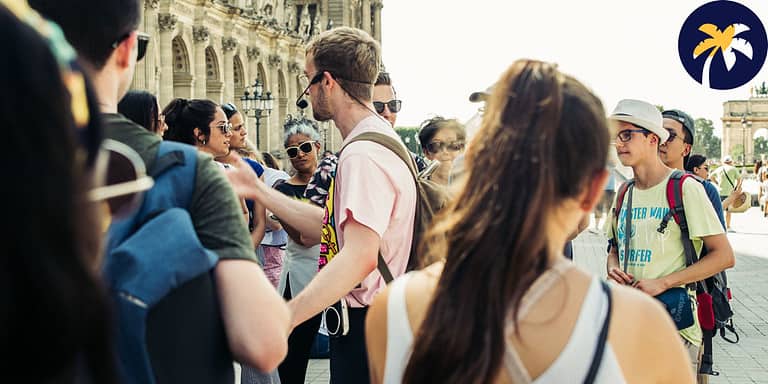
Welcome to PlanTrips.net , where we unravel the fascinating world of travel and adventure! In this blog post, we delve into the realm of tour guides and showcase the different types of tour guides you may encounter during your travels.
These knowledgeable individuals are dedicated to making your journey extraordinary, offering unique insights and captivating stories that breathe life into your destination. Join us as we embark on a journey through the different types of tour guides that cater to various interests and preferences.
Who Are Tour Guides?
Tour guides are individuals who provide guided tours and information to travelers and visitors at various destinations. They are experts in their respective fields, possessing knowledge about the history, culture, landmarks, attractions, and other relevant aspects of the places they guide visitors through. Tour guides play a crucial role in enhancing the travel experience by sharing insights, providing context, and creating memorable interactions with the destination.
To be effective in their role, tour guides typically possess excellent communication and interpersonal skills. They must be able to engage and connect with diverse groups of travelers, adapting their presentation style to cater to different audiences. They are responsible for conveying information in an engaging and informative manner, ensuring that visitors have a deeper understanding and appreciation of the places they visit.
Tour guides often undergo training and acquire the necessary qualifications to perform their duties. This may involve studying relevant subjects, obtaining certifications, and continuously updating their knowledge about the destinations they guide. Additionally, guides may possess additional skills such as language proficiency, first aid training, or specialized expertise in a particular area.

Types of Tour Guides
There are several types of tour guides, each catering to different interests and preferences. While the exact categorization may vary, here are some common types of tour guides:
1. City Guide: Unveiling Urban Treasures
When exploring a new city, there’s no better companion than a city guide. Whether on foot, bicycle, or bus, these guides possess an intimate knowledge of their urban domain.
They go beyond what guidebooks can provide, enriching your experience with insider information, local anecdotes, and lesser-known highlights. Immerse yourself in the culture, history, and vibrant atmosphere as your city guide brings the destination alive before your eyes.
2. Historical Guide: Stepping into the Past
For those with a penchant for history, a historical guide is an invaluable asset. These guides lead you to areas of historical importance, such as battle sites, Roman ruins, medieval cathedrals, and ancient structures.
By weaving together the stories of the past, they breathe vibrancy and liveliness into these historic sites. Delve into the larger context and uncover intriguing historical tidbits that shed light on the present.
3. Museum Curation Guide: Art and Artifacts
Come Alive Museums and art galleries become infinitely more captivating with a knowledgeable guide by your side. Museum curation guides are experts at providing background information on artifacts and artworks, curating the finest displays to fuel your curiosity and appreciation.
Their valuable insights and ability to answer questions transform your visit into an enlightening and immersive experience.
4. Nature Guide: Embracing the Great Outdoors
For nature enthusiasts and adventure seekers, a nature guide is the perfect companion. These guides specialize in leading groups through natural landscapes, sharing their knowledge of local wildlife, geology, and the prehistoric life that once thrived in the area.
Whether it’s a leisurely nature hike or an adrenaline-pumping adventure, these guides ensure an active and immersive experience, creating unforgettable memories in the great outdoors.
5. Specialized Guides: Unconventional Paths Await
Beyond the common types of tour guides, a world of specialized guiding awaits. This realm is particularly open to those who choose the freelance route. Specialized tour guides have found success by imparting knowledge on unique subjects and themes.
From afternoon tea tours and paranormal expeditions to crime and murder tours, pub crawls, and cemetery explorations, these guides cater to niche interests. Drawing inspiration from your city’s notable figures, history, and unique offerings, these tours ignite creativity and enable you to explore your passion in new and exciting ways.

Some other types of tour guides:
- Adventure Guides: Adventure guides specialize in leading tours that involve outdoor activities and adventure sports such as hiking, kayaking, rock climbing, and more.
- Cultural Guides: Cultural guides focus on immersing visitors in the local traditions, customs, arts, and cuisine of a particular region or community.
- Wildlife Guides: These guides are knowledgeable about wildlife and lead tours to observe and learn about different animal species in their natural habitats.
- Archaeological Guides: Archaeological guides specialize in leading tours to ancient sites, explaining the history and significance of archaeological discoveries.
- Food and Culinary Guides: Food and culinary guides offer tours that focus on local gastronomy, taking visitors to iconic restaurants, markets, and food-related landmarks.
- Wine and Beverage Guides: Wine and beverage guides lead tours to vineyards, wineries, breweries, and distilleries, providing insights into the production processes and conducting tastings.
- Photography Guides: Photography guides accompany groups, offering guidance on capturing the best shots and highlighting picturesque locations.
- Art Guides: Art guides specialize in leading tours of museums, galleries, and public art installations, providing interpretation and insights into various artistic movements and works.
- Sustainable or Eco-tourism Guides: These guides focus on promoting responsible and sustainable tourism practices, highlighting eco-friendly destinations and activities.
Conclusion:
As you embark on your next adventure, keep in mind the multitude of tour guides available to enhance your travel experience. City guides, historical guides, museum curation guides, nature guides, and specialized guides each bring their own expertise and passion to the table.
Choose the type that resonates with your interests and embark on a journey that goes beyond the surface, unveiling hidden gems and weaving stories that will stay with you long after your trip ends. Happy exploring!
4 thoughts on “Types of Tour Guides: Exploring the Diversity”
- Pingback: Tour Guide: How To Find A Perfect One? | PlanTrips
- Pingback: Free Bio Page Mastery For Tour Guides Course | PlanTrips
- Pingback: Introducing The New PlanTrips Logo | PlanTrips
- Pingback: Tour Guide Certification: Knowledge and Trust | PlanTrips
Leave a Comment Cancel reply
Save my name, email, and website in this browser for the next time I comment.
About Johny D.
Argentina Travel Itinerary: Plan With PlanTrips
Free bio page mastery for tour guides course.
Travel Guides, Info & Tips Blog
The Top 25 Qualities of an Effective Tour Guide-Guiding the Way
Are you passionate about travel and enjoy sharing your knowledge with others? Becoming a tour guide might be the perfect career path for you. Being a practical tour guide requires a unique set of skills and qualities that go beyond simply knowing the facts about a destination. In this article, we will explore the 25 qualities of a practical tour guide and how they contribute to creating memorable and enriching travel experiences.
Being an effective tour guide is not just about knowing the destination but also about possessing a range of qualities that enhance the overall experience for travelers. From excellent communication skills to a deep passion for the subject matter, a practical tour guide can make all the difference in creating memorable and meaningful experiences for their guests.
In this article, we will explore 25 essential qualities for any tour guide looking to excel in their profession. Whether you are already a tour guide or aspiring to become one, this comprehensive guide will provide valuable insights and tips to enhance your skills and become an exceptional tour guide.
Table of Contents
What Qualities Do I Need To Be A Tour Guide?
To be a successful tour guide, there are several essential qualities that you should possess.
- Firstly, strong communication skills are vital. As a tour guide, you will need to convey information to your clients clearly and engagingly effectively. Excellent verbal and written communication skills will help you effectively communicate historical facts, local customs, and interesting anecdotes.
- Secondly, a deep knowledge and passion for the subject matter is crucial. Whether you are guiding tourists through a historical city, leading a nature hike, or conducting a food tour, you should have a thorough understanding of the area’s history, culture, and attractions. This knowledge will not only enhance your credibility as a guide but also enable you to answer questions and provide interesting insights to your clients.
- Lastly, being personable and friendly are essential qualities for a tour guide. You will interact with people from various backgrounds and cultures, so being approachable and adaptable is critical. Your enthusiasm and positive attitude will not only make the tour more enjoyable for your clients but also help create a welcoming and inclusive environment.
In conclusion, to be a successful tour guide, you should possess strong communication skills, a deep knowledge and passion for the subject, and be personable and friendly. These qualities will help you effectively engage and connect with your clients, making their experience memorable and enjoyable.
What Skills Make A Tour Guide With 5-Star Quality?
Regarding being a tour guide with 5-star quality, several critical skills are essential. Firstly, excellent communication skills are crucial. A tour guide must effectively convey information, engage with their audience, and answer questions. Clear and concise communication is essential to ensure tourists have a memorable and enjoyable experience.
In addition to communication skills, a tour guide should also have extensive knowledge and expertise in the area they are guiding. This includes historical facts, cultural insights, and local tips and recommendations. A 5-star tour guide is well-prepared and can provide accurate and exciting information, enhancing the tour experience.
Furthermore, a tour guide with 5-star quality must possess exceptional customer service skills. They should be friendly, approachable, and able to create a positive and welcoming atmosphere. A great tour guide understands the importance of personalizing the experience for each tourist and goes above and beyond to ensure their satisfaction. From anticipating needs to providing an exceptional level of service, these skills are vital in creating a memorable tour experience.
What Is The Most Important Quality Of Becoming An Effective Tour Guide?
When it comes to becoming a practical tour guide, several qualities are important to possess. However, one of the most crucial qualities is knowledge. A tour guide must have extensive knowledge about the destination they are guiding tourists through. This includes knowing about the history, culture, landmarks, and other important aspects of the place. Being well-informed allows the tour guide to provide accurate and interesting information to the tourists, enhancing their overall experience.
In addition to knowledge, communication skills are also essential for an effective tour guide. Communicating clearly and concisely is important in delivering information to the tourists. A tour guide must be able to articulate their thoughts and ideas in a way that is easily understandable to a diverse group of people. Good communication skills also involve listening to the tourists’ questions and feedback and being able to respond appropriately.
Lastly, enthusiasm and passion for the job set apart a great tour guide from an average one. A tour guide who is genuinely excited about the destination and their role in showcasing it will be able to create a positive and engaging atmosphere for the tourists. Their enthusiasm will be contagious, making the tour more enjoyable and memorable for everyone involved.
What Are The 5 Roles Of A Tour Guide?
A tour guide plays multiple roles in ensuring a successful and enjoyable travel experience for their guests. Here are the five primary roles of a tour guide:
1. Informer: The primary role of a tour guide is to provide accurate and relevant information about the destination. They should be knowledgeable about the history, culture, landmarks, and other significant aspects of the place. Tour guides should be able to answer questions, share interesting facts, and engage their guests in informative discussions.
2. Interpreter: Tour guides bridge the gap between different cultures and languages. They act as interpreters, translating information and conversations for their guests. They ensure effective communication between locals and visitors, enhancing the understanding and appreciation of the destination.
3. Organizer: Tour guides are responsible for planning and organizing the itinerary. They arrange transportation, accommodation, and activities, ensuring a smooth and efficient travel experience. They handle logistics, such as coordinating schedules, managing reservations, and running any unforeseen circumstances that may arise during the trip.
25 Qualities Of An Effective Tour Guide Pdf
To view a PDF document that provides more detailed information on these 25 qualities of a practical tour guide, please click the link below: 25 Qualities of an Effective Tour Guide PDF.
25 Qualities Of An Effective Tour Guide Ppt
https://www.slideshare.net/jen199629/qualities-of-an-ideal-tour-guide
Skills Of A Tour Guide
- Communication Skills:
- Clear and confident speaking voice
- Appropriate language for the audience
- Ability to engage and connect with travelers
- Responsive to questions and concerns
- In-Depth Knowledge:
- Strong understanding of the destination’s history, culture, and attractions
- Staying updated on current events and changes in the area
- Organization and Time Management:
- Creating well-planned itineraries
- Efficient coordination of transportation and accommodations
- Handling unexpected situations effectively
- Interpersonal Skills:
- Building rapport with clients
- Friendliness and approachability
- Patience and attentiveness
- Sense of Humor:
- Creating a relaxed and enjoyable atmosphere
These skills and qualities collectively contribute to a tour guide’s ability to offer travelers an exceptional experience during their journey.
Characteristics of an Exceptional Tour Guide
- Knowledgeable: Possesses in-depth knowledge of the destination’s history, culture, and attractions.
- Excellent Communication Skills: Communicates information clearly and effectively to travelers.
- Enthusiastic: Inspires excitement and engagement among tour participants with their passion for the subject matter.
- Flexible: Adapts easily to unforeseen situations and changes in the itinerary.
- Organized: Ensures a smooth and efficient tour experience through careful planning and preparation.
- Problem-Solving Abilities: Capable of finding solutions quickly and efficiently, especially in challenging situations.
- Multilingual: Speaks multiple languages to cater to a diverse group of travelers.
How to Become an Effective Tour Guide
- Gain Extensive Knowledge: Conduct thorough research to acquire a deep understanding of the destination you’ll be guiding.
- Develop Communication Skills: Practice and consider attending public speaking courses to improve your ability to convey information effectively.
- Cultivate Enthusiasm: Stay curious and continuously learn about new attractions and experiences to maintain a high passion for your subject.
- Enhance Adaptability: Seek opportunities to work in different environments and practice handling unexpected situations to become more flexible.
- Improve Organizational Skills: Create detailed itineraries and proactively plan logistics for a well-organized tour.
- Sharpen Problem-Solving Abilities: Participate in scenario-based training programs or seek advice from experienced tour guides to become a more effective problem solver.
- Learn Additional Languages: Consider taking language courses or participating in immersion programs to become multilingual.
10 Characteristics Of A Tour Guide
- Knowledgeable
- Communication skills
- Flexibility
- Organizational skills
- Interpersonal skills
- Problem-solving
- Professionalism
- Sense of humor
As A Tour Guide, How Will You Manage Tourist With High Expectations?
Strategies for Managing Tourists with High Expectations
1. Listen Actively: Listen to tourists’ expectations, interests, and preferences.
2. Manage Expectations: Be transparent about what the tour can realistically offer and set clear expectations.
3. Provide Detailed Information: Ensure tourists have comprehensive information about the tour itinerary, attractions, and activities.
4. Be Knowledgeable and Professional: Demonstrate expertise in destinations, history, culture, and local customs.
5. Offer Personalized Experiences: Tailor the tour to cater to individual preferences, arranging special interests-based activities.
6. Maintain Effective Communication: Keep tourists informed about changes and provide alternative options.
7. Handle Complaints Professionally: Address dissatisfaction empathetically, offering solutions to resolve concerns.
8. Seek Feedback: Encourage tourists to provide feedback after the tour to improve future experiences.
What makes a great tour guide and host? | Rick Steves | TEDxSeattleSalon
In conclusion, a practical tour guide is vital in crafting unforgettable travel experiences. With extensive knowledge, excellent communication, and adaptability, they enrich journeys and create lasting memories. Beyond information, they foster a sense of camaraderie and storytelling, making them essential for exceptional adventures.
In conclusion, an effective tour guide plays a vital role in crafting unforgettable travel experiences. With qualities such as extensive knowledge, excellent communication, and adaptability, they enrich journeys and create lasting memories. Beyond information, they foster a sense of camaraderie and storytelling, making them essential for exceptional adventures.
How to look for the qualities of an effective tour guide operator when hiring

By Kevin Tjoe — 24 Jun 2018
amadeus tips tour guide tour operator
Updated June 2022 – Raise your hand if you’ve ever felt like giving up on hiring your next tour guide. When you on-board new hires, you’re hit with the realization that they’re just not a good fit, killing any sense of confidence you had about finding the best person for the job. It’s daunting enough finding a new hire – never mind going through the on-boarding process all over again when it doesn’t work out.
Well, there’s good news: selecting your next tour guide role doesn’t have to be that hard. With the right set of criteria of tour guide skills at your disposal, you could easily find the best tour guide for your business, all without the hassle that comes with having it not work out.
Wondering what personality traits do tour guides have that will reveal their future success or failure? To help you answer this, we’ve outlined 10 important qualities of a good tour guide.
With these tour guide characteristics tips, you’ll know exactly what makes a good tour guide and have the proper tools in place to hire someone who will exceed customer expectations and customer satisfaction.
1. Enthusiasm
One of the most fundamental tour guide characteristics is enthusiasm.
Customers can tell if a tour guide doesn’t want to be there. Considering that nobody wants to feel like their presence is a nuisance, it is impossible to provide customers with a fun and engaging tour if it’s obvious that their guide would prefer to be at home.
On the other hand, enthusiasm is contagious. If a customer notices that their tour guide is as excited to be there as they are, they’ll feel a lot more satisfied with their overall experience. Enthusiasm fosters an authentic connection between the tour guide and customers. It’s also the backdrop of all of the other essential characteristics of a good tour guide. An enthusiastic tour guide will be not only willing but excited to grow their skills and engage with the customers.
2. Organization and punctuality
Besides dressing themselves well, this involves setting expectations prior to the tour – informing customers of location, time, and length of tour, what they need to bring, and any rules or special considerations (if your online booking system doesn’t automate this for you). Your tour guide needs to have organisational skills to be able to run through the structure for each tour in advance.
Ultimately, one of the key characteristics of a good tour guide is effective time management skills and punctuality. They shouldn’t make customers wait for them, and they should end the tour on time.
How punctual are they when it comes to their appointments with you during the interview process? This is a good indicator of how they will be when running your tours.
The speed with which they speak and move the tour along should also be just right – it can’t be too fast or too slow. You don’t want your customers to get bored or feel rushed through certain parts of the tour.
3. Prepared for anything

A good tour guide is adept at improvising, no matter whether it’s responding to hiccups in the tour’s timing, unexpected customer questions, or responding to crises. It’s key that your tour guides are capable of efficiently detecting and responding to any crisis, no matter how big or small. They should also have a comprehensive understanding of your company’s tour guide insurance policies and how this may relate to their work.
Unexpected situations can crop up where medical assistance is needed. Every guide should know First Aid and carry the appropriate equipment. Can your candidate attend to the injured using this equipment? If not, are they willing to attend First Aid training prior to starting?
4. Can read the room
A good tour guide will take the initiative to learn about customers on the tour, then include universally relevant information to tailor the examples they use to make it more personal. They need to be aware of who they’re speaking to, the audience needs to see that your tour guide engages with all the attendees.
5. An engaging storyteller
Obviously, you don’t want people to become disinterested whilst on your tour. Your guide’s personality is a huge part of that. Can they make the tour more interactive? They should be able to invite questions and use demonstrations to help tourists to learn by themselves.
One of the most essential qualities of a good tour guide is a great customer service experience and the ability to hold good conversations. It’s also important that they have a passion for travel as this will keep the audience interested and engaged .
Make sure that they themselves are interested in the subject matter, because they need to be enthusiastic about what they’re saying.
6 . Knows their stuff

Another one of the most important characteristics of a tour guide is their ability to retain information.
Your guide must be able to recite facts from memory and be clear in delivering them. Facts have to be accurate – otherwise, they should be able to say they aren’t sure and get back to the customer asking.
Of course, you can’t expect your tour guide to know everything from day one. But hiring a tour guide who demonstrates an enthusiasm for learning and has clearly researched your tour company prior to their job interview, is key to ensuring that your staff are committed to learning and understanding the tours they provide.
7. Multilingual
While it may not be a necessity, speaking multiple languages is an excellent and particularly useful quality of a good tour guide. A multilingual tour guide will dramatically broaden your target audience and help welcome people from varying backgrounds to your tour.
A tour guide doesn’t need to be fluent in dozens of languages for their lingual skills to be handy. All tour guides should at least have a conversational grasp of commonly encountered languages. This knowledge becomes extremely useful if someone has an emergency.
8. Leadership and initiative
Since they’re managing a group of people, the ability to have a certain level of authority is crucial. Tour guides must be able to lead a group of people without being condescending, snobby, or aggressive. If something unexpected happens on the tour, a good tour guide will be able to take charge in an assertive manner to ensure that all customers receive the right directions.
9. A good sense of humor

Whilst they don’t have to be total comedians, tour guides need to be quick witted so they can throw in friendly jokes or light banter with the customers. Again, it’s not a stand-up routine, so they should also know when to be quiet. You can gauge this aspect of their personality when they interview for the job.
10. Willingness to learn
A key part of your tour should be collecting feedback and using it to make it better. Your tour guides should be open to change based on customer criticism – without taking it too personally.
Of course, the ideal tour guide will look differently for each tour operator company as some traits are necessary for certain activities but not others. However, there are certain qualities of a good tour guide that transcend time and place: enthusiasm, a willingness to learn, leadership skills, and punctuality.
Now that you’ve found what makes a good tour guide, it’s time to ensure that your newly hired tour guides are given the right tools they need to succeed.
Rezdy’s all-in-one online booking software simplifies the management of your tour company so you can ensure that your customers receive a satisfying experience. Curious to see how Rezdy can help your tour guides succeeds? Start a FREE 21-day trial or book a demo so you can experience first-hand the benefits of automated activity booking websites.
If you enjoyed this article then make sure to follow the Rezdy blog . There are a lot of marketing tools and tour operator tips designed with businesses like yours in mind.
Start your free trial today
Enjoy 21 days to take a look around and see if we are a good fit for your business.
No obligations, no catches, no limits, nada
Sie verwenden einen veralteten Internet-Browser. Bitte laden Sie sich eine aktuelle Version von browsehappy.com um die Seite fehlerfrei zu verwenden.
How to create an Online Travel Guide
Helpful tips to understanding and writing various types of travel guides
The Different Types of Travel Guides
The goal of every travel guide is to help potential travelers prepare for their journey and have the best possible trip. A travel guide should be informative, but it can also be interesting or inspiring. Take a closer look at some of the most common types of travel guides as well as the benefits of each.

Destination Travel Guide
A destination travel guide is just what the name suggests: a travel guide that revolves around a specific destination. These guides can cover an entire country, but they can also focus on a specific city or even a small town. A destination travel guide should entice someone to visit that destination, and it should provide readers with specifics about that spot.
A destination travel guide might start by detailing the destination and explaining where it is located or how travelers can get there. Then, it should focus on the main reasons to visit the area. Readers might want to know what the main attractions in the destination are and whether they would appeal to budget travelers, outdoor enthusiasts or sports fans.
A destination guide might also focus on ways to make the most of a trip to that destination . For example, your guide could include details on how expensive the destination is or where the most popular hotels are located. Information about weather, security and transportation are all welcome in a destination guide.

Special Interest Travel Guide
While a destination guide focuses on a specific area and includes as much detail as possible, a special interest travel guide is far more focused. This is a type of niche writing, and it is designed to appeal to a specific demographic. Ultimately, the special interest you focus on is up to you. Some ideas include cuisine, history, architecture, fitness or pets.
Food is a major focus for special interest travel articles. People from around the world love to eat, and travel is often a great way to explore new cuisines and dig into new dishes. A culinary travel guide could include details on up-and-coming restaurants, Michelin-starred eateries and food vendors that tourists wouldn’t typically visit.
Other special interest guides may focus on a specific interest like history, art or architecture. If travelers are heading to Palm Springs specifically for the mid-century modern architecture, what buildings should they visit? If they are in New York City and love history, which museums are the most impressive?
A travel blog might also put an emphasis on pet-friendly travel. There are 77 million pet dogs and 85 million pet cats in the United States, and many of them travel with their owners. Highlighting which hotels, restaurants and attractions are pet-friendly can be valuable to a lot of readers.

Financial Travel Guide
One of the most common reasons why people avoid travel is cost. At the same time, many prospective travelers are eagerly searching for ways to travel more while spending less. For that reason, lots of travel guides specifically focus on the costs related to travel. Many more give readers tips on how to reduce expenses on upcoming trips.
Sometimes, readers just want information. A person who is planning a trip to Europe might want to know the average hotel costs in Paris or whether a hostel in Berlin is affordable. Financial travel guides that offer specific costs for accommodation, transport, food and attractions are incredibly useful.
Another type of financial travel guide will suggest ways to keep costs low on upcoming trips. It may include lists of affordable hostels, discounts on train travel or cheap and accessible grocery stores located in major cities.

Narrative Travel Guide
A narrative travel guide is the story of a singular travel experience. This type of travel blog can be any length, and it can detail any number of experiences. While a narrative travel guide can absolutely be educational, it is also designed to transport readers to a new destination.
A narrative travel guide might tell the story of a family that heads to Asia for an extended trip with young children. The unique challenges of this trip and the events along the way are woven together to become a cohesive narrative. This might inspire readers to take their own journey with children.
Stories can revolve around travel in off-the-beaten-path locations, or it can be an emotional journey. Narratives can discuss exploring a single city over a long weekend, or they can detail a year-long trek through Europe. These articles are less likely to include bullet points since they are more likely to read like short stories.

Side Trip Travel Guide
Many travelers will plan their getaway by booking a flight to a major destination. Their journey may take them to a bustling metropolis like London, New York or Hong Kong. These thrilling cities have a lot to offer, and a standard destination guide can certainly offer plenty of options. However, many visitors want to get away from these hubs and see something a little different for a day or two. That’s why side trip travel guides are growing increasingly popular.
A side trip travel guide can suggest and detail one or more choices for an escape from the main attraction. Visitors to London, for example, could plan a side trip to Brighton for the day. Those who travel to Berlin might take the train to Hamburg to see something new, and visitors to Orlando could see what Tampa has to offer. Offering advice on how to arrange transport for these trips, how long travelers should spend in each destination and the top attractions to include on an itinerary are all great additions to a side trip travel guide.
Need help creating unique, high-quality content for you next travel guide?
Join over 53,000 customers worldwide and use Textbroker to help you find the perfect content to excite your travel audience
Free Client Registration!
How to Create The Perfect Online Travel Guide
Putting together a travel guide can be exciting, but it also takes a lot of work. Since there are so many different types of travel articles out there, it is important to stand out. Offering something unique gives readers a reason to gravitate toward your travel guide above all others. Here are some of the best tips to keep in mind as you create your travel guide.
Decide on the Type of Travel Guide You Want to Write
- Destination travel guide
- Special interest travel guide
- Financial travel guide
- Narrative travel guide
- Side trip travel guide

How to Write a Travel Blog
To know how to write a travel blog, you first need to know what kind of blog you’re writing. Then, you can put together an outline. A destination travel guide might have separate headings pertaining to attractions, accommodations and transport. A narrative travel guide might not have headings at all, and it may be a story told in the first person. Understanding the format of your article will help as you flesh it out and create something that others will truly want to read and share.
Pick an Angle for Your Travel Content
The next step in writing your travel guide is deciding on an angle. This means thinking carefully about who you want to read your work. Although it might be nice to imagine that anyone can find value in a travel guide, the reality is that targeting a specific demographic can have better results .
Think of your target audience. Imagine what kinds of people are in that group. This is known as putting together a buyer persona. As you write the travel guide, try to appeal to this specific kind of person.
If you’re writing to young professionals without children, you’ll want to include lists of higher-end hotels and great nightlife options. If you’re writing to retirees, then off-season trips with a more relaxed pace could be a better option. Targeting your audience in every sentence ensures that the right readers gain value from the final product.

Be Sure to Include Graphics
Travel guides can be formatted in a number of different ways. However, there are some best practices that will make your content easier to read online. Keep your paragraphs short so that readers can skim through content and find the information most relevant to them. If possible, include bullet points or lists to streamline the content. Adding hyperlinks can direct readers to sources for further information. Above all else, aim to include graphics .
Graphics can break up the content and make your travel guide more visually appealing. Travel is a very visual topic. When individuals plan their trips, they want to see the places they will be visiting, admire the hotel rooms where they might be staying and drool over the food served in the region.
If your travel guide is more informative, adding in charts or infographics might be a smart idea. Visual elements of all varieties keep content interesting and appealing, which in turn keeps more readers on the page for longer.

Invoke All the Senses
In even the most educational of travel guides, your travel content should tell a story. Whether you’re detailing the cheapest ways to visit Boston or you’re encouraging people to take a day trip to Macau from Hong Kong, your content should inspire them. As you read the guide, does it make you want to hop on the next flight? One way to make your travel guide pop is to invoke all the senses.

This simply means describing the environment using all the senses. How does the air smell while hiking in the Alps? What do you hear while sailing on a gulet boat in Turkey? What does it feel like to cross the busy streets of Tokyo? Some examples of invoking the senses in travel writing can include the following:
• Nothing compared to the sweet taste of the beignets and the bitterness of the chicory coffee. • The chatter of multiple languages swirled around the confines of the train car. • From the lookout point, I could see over the Welsh border and into England. • I followed my nose to the delightful savory smells of the local kebab shop. • The wind picked up as we headed south, and cool raindrops fell onto my bare arms.
All of this language can help readers feel like they are there with you. It turns an ordinary blog post into a guide packed with inspiration and excitement.

Don’t Forget About SEO!
Travel articles should be written with your intended audience in mind. Nonetheless, it is critical to think about how your travel guide will be found. There are three main ways for readers to access content: direct, search and social media. You can send links to your content to email subscribers, and you can post links to your travel guides on your various social media platforms. The third element, search, requires individuals to search for specific terms online, find your content and click on it from the search engine results page.
To appear on that first search engine results page, or SERP, your content should be written with search engine optimization in mind. First and foremost, that means creating high-quality content with the end user in mind. It should be engaging, relevant and optimized to include appropriate keywords (without unnatural keyword stuffing), meta tags and back-end SEO modifications. This will ensure that more people can find your content when they use search engines like Google, Yahoo or Bing.
Keys to Publishing and Promoting Travel Guides
Once your travel guides have been written, it is time to get them in front of readers. Travel guides can’t be effective until they have been read! In today’s world, publishing travel guides typically means digital publishing, which means the content can be viewed on websites and blogs. Promoting this content is key in order to increase traffic, build your reputation and convert readers into subscribers or customers.
Decide Where and How to Publish Your Travel Guides
Often, individuals and businesses who are putting together travel guides already have an idea of where they will be published. Travel guides are a natural fit on a website, and they are also featured on many private and commercial blogs . However, there are still some publishing decisions you’ll need to make.
Some travel guides can be published as single reads. On the other hand, some are so long that they will need to be broken up into manageable segments. This might be a great time to introduce a blog series. You can publish a new blog entry every day or every week, depending on your publishing schedule.
If you have a collection of related travel guides, it might make sense to offer them as a single e-book. An e-book can be sold at a profit, but it can also be offered to individuals who subscribe to email marketing campaigns or who download from your website. An e-book can be a fantastic way to use content more than once and to draw in more traffic, gather email addresses and build your contact list.
Share Your Travel Guides on Social Media
Social media is one of the best strategies to promote your travel guides. Sometimes, businesses fumble with deciding which platform to use. The reality is that if you already have thriving social media platforms, then the ones you have are the best ones to use! The key is connecting with your audience by whatever means possible.
For some companies, a younger audience means utilizing visual social media platforms like Instagram or Snapchat. You might post fantastic photos of your destination along with a link that leads directly to a related travel guide. You can also share links to your travel guides on Facebook, LinkedIn, Twitter, Reddit or Google+.
Include Snippets or Full Articles in Marketing Emails
An ideal way to share and promote your travel blog is through email. If you have a contact list made up of inquiries, current customers and past clients, then you’re already halfway there. Crafting an email marketing campaign just means getting your content in more inboxes.
Your marketing emails can include all kinds of topics, but travel articles might be a natural fit. If the travel guide in question is relatively short, you could email the entire version to readers. If it is longer, or if you want more direct traffic to the website, include just a snippet of the text. If readers want to see more, they can follow your links and head to your main page.
A valuable tool in the online travel industry is a subscriber list. This is a group of individuals who have opted in to your emails in order to learn more or snag deals. Be sure not to abuse this subscriber list and to respect those who unsubscribe. When used appropriately, email campaigns can be a fantastic way to increase traffic and brand awareness.
Consider Advertising in Order to Reach a Wider Audience
Ideally, you would be able to promote your travel content without paying a penny. If you want to get even more eyes on your travel guides, however, it may be worth paying for advertising . There are a lot of paid advertising options available, and you can advertise through any number of platforms.
Pay-per-click advertising, or PPC, means that you only pay if a person clicks on your ad and heads to your website. You may pay slightly more for this kind of advertising, but it means you only pay if someone is redirected to your site. The alternative is CPM, or cost-per-thousand advertising. In this format, you pay a set price for every 1,000 impressions on your webpage. This is cheaper per impression, but you need to work hard to ensure that the ad is being seen by the right audience.
You can pay to boost your travel guides in search engines. If someone searches for something related, your content can pop up as a sponsored result at the top of the SERP. You could even pay to occupy permanent real estate on the side or banner of a friendly, related website.
Allow Readers to Share Your Content
Sometimes, the best way to promote your travel guides is to let someone else do all the work. If readers enjoy your content, make sure there are easy and convenient ways for them to share that information with their friends and networks. One effective solution is to include share buttons at the bottom of your travel guides. This makes it possible for readers to post the link to the article on platforms like Facebook or Twitter. With the click of a button, you’ll be reaching new readers and a brand-new audience. Plus, this can be done at no cost to you.

Consider Guest Posting or Hosting as a Way to Promote Your Travel Guides
A popular form of promotion is known as guest posting. There are two ways to encourage guest posting if you have a website or a blog. First, you can be the guest that posts content on other websites. Second, you can host other guest authors who want to promote their content on your page. The best relationships have give and take, which means you do a little of both.
If you are the guest author, you can offer your travel guide content to a third party. If you’re a travel blog, you might partner up with a cooking blog. You could suggest a special interest piece about food in Morocco. Then, your travel piece about Moroccan food will be posted on the cooking website along with links back to your blog. This increases your audience and brings you valuable new connections.
As long as your content is engaging, unique and informative, you should have little trouble connecting with the right audience.
No comments available
Do you have a question or an opinion on the article? Share it with us! Cancel reply
Your email address will not be published. Required fields are marked *
Managed-Service
Textbroker offers an extended level of service with the Managed Service option. Managed Service gives you additional support and a personal account manager when you want us to manage your projects for you. Find out more here.
Self-Service
Do you need up-to-date content? Then manage your project through Textbroker’s Self-Service. You choose the quality level, price, and author for your content.
Thousands of authors from across the U.S. earn money with Textbroker, the leading provider of unique, custom content. Become a Textbroker author now and access thousands of projects to choose from.
How to become a tour guide
Is becoming a tour guide right for me.
The first step to choosing a career is to make sure you are actually willing to commit to pursuing the career. You don’t want to waste your time doing something you don’t want to do. If you’re new here, you should read about:

Still unsure if becoming a tour guide is the right career path? Take the free CareerExplorer career test to find out if this career is right for you. Perhaps you are well-suited to become a tour guide or another similar career!
Described by our users as being “shockingly accurate”, you might discover careers you haven’t thought of before.
How to become a Tour Guide
Becoming a tour guide involves a combination of education, training, and practical experience. Here is a detailed guide on how to pursue a career as a tour guide:
- Obtain a High School Diploma: Start by completing your high school education or its equivalent. A strong foundation in subjects such as history, geography, languages, and communication will be beneficial in your future career as a tour guide.
- Choose a Specialization: Decide on the type of tours you are interested in guiding. Consider whether you prefer city tours, nature and wildlife tours, historical tours, or any other niche area. This will help you focus your training and develop expertise in your chosen field.
- Acquire Relevant Education: While not always a requirement, pursuing a degree or certificate can enhance your knowledge and credibility as a tour guide. Look for degree programs in areas such as travel and tourism management , cultural studies , or history .
- Gain Local Knowledge: Familiarize yourself with the destinations you wish to guide tours in. Learn about the local history, landmarks, cultural traditions, and attractions. Explore museums, historical sites, and natural areas to deepen your understanding of the area's offerings.
- Develop Language Skills: If you plan to guide tours in a foreign country or cater to international tourists, it's beneficial to acquire proficiency in one or more foreign languages. This will enable you to communicate effectively and cater to a wider range of visitors.
- Obtain Relevant Licenses and Certifications: Check the requirements of the destination or country where you intend to work as a tour guide. Some locations may require you to obtain specific licenses or certifications to operate legally. Research and complete the necessary training or examinations to meet the requirements.
- Gain Practical Experience: Seek opportunities to gain practical experience in the tourism industry. Consider working part-time or as an intern with local tour operators, travel agencies, or visitor centers. This will provide valuable hands-on experience and help you develop your skills in guiding and managing groups.
- Enhance Communication and Interpersonal Skills: Effective communication and interpersonal skills are essential for a tour guide. Work on developing your public speaking, storytelling, and customer service skills. Practice engaging with different types of people and adapting your communication style to suit diverse audiences.
- Join Professional Associations: Consider joining professional associations or organizations for tour guides. These groups provide networking opportunities, access to industry resources, and professional development workshops or seminars.
- Continuously Update Your Knowledge: Stay updated on the latest developments, trends, and attractions in the destinations you guide tours in. Regularly research and read about new historical discoveries, cultural events, or changes in tourist regulations to provide accurate and up-to-date information to your clients.
- Market Yourself: Create a professional portfolio or resume highlighting your qualifications, experience, and areas of expertise. Establish an online presence through a website or social media platforms, showcasing your skills and providing information about the tours you offer.
- Start Guiding: Once you feel confident and ready, start offering your services as a tour guide. You can join an established tour company or operate independently. Consider offering free or discounted tours initially to gain testimonials and build a client base.
Associations and Organizations There are several associations and organizations dedicated to the professional development and support of tour guides. These associations offer resources, networking opportunities, training programs, and advocacy for tour guides. Here are some prominent associations and organizations for tour guides:
- World Federation of Tourist Guide Associations (WFTGA): The WFTGA is an international federation that represents tour guide associations from around the world. It provides a platform for networking, professional development, and advocacy for tour guides. The WFTGA organizes conferences, training programs, and certifications for tour guides.
- National Federation of Tourist Guide Associations (NFTGA): The NFTGA is the umbrella organization representing various national tour guide associations. It aims to promote the profession of tour guiding and provide a forum for sharing best practices and professional development opportunities among member associations.
- International Association of Tour Managers (IATM): The IATM is a professional association for tour managers and guides. It offers resources, training programs, and networking opportunities to support the professional growth of tour managers and guides worldwide.
- Professional Tour Guide Associations: Many countries have their own national or regional tour guide associations that provide support, resources, and training for local tour guides. Examples include the National Tour Association (NTA) in the United States, the Guild of Registered Tourist Guides in the United Kingdom, and the Japan Guide Association (JGA) in Japan.
- World Federation of Tourist Guide Associations - Americas (WFTGA Americas): WFTGA Americas is a regional federation representing tour guide associations in the Americas. It focuses on promoting professional standards, fostering cooperation among member associations, and providing educational opportunities for tour guides in the region.
- Cultural and Heritage Interpretation Associations: There are associations that focus on interpretation and education in cultural and heritage sites. These associations provide resources, training, and networking opportunities for tour guides working in museums, parks, historical sites, and other cultural and natural heritage settings. Examples include the National Association for Interpretation (NAI) and Interpretation Canada.
- Destination-Specific Associations: Some destinations have their own tour guide associations that cater to the needs of local tour guides. These associations often collaborate with tourism boards, industry stakeholders, and government agencies to support the professional development and recognition of tour guides. Examples include the Association of Professional Tourist Guides and Tour Escorts of Italy (APIT) and the Cape Tourist Guides Association (CTGA) in South Africa.
Effortless booking
Maximize online conversions with the most intuitive checkout online.
Expand revenue with our powerful Automated E-commerce tools.
Upgrade your website to industry’s best. Fresh websites. Fresh revenue.
Amplify visibility and expand earnings with integrated OTAs and local partners.
Streamline check-ins, limit risk, and amplify customer data with built-in digital waivers.
Transform data into insights. X-ray reporting gives you customer and business intelligence.
Manage high-volume walk-up customers effortlessly with POS, ticketing, and gated entry.
Automate management of staff schedules, assignments, and staff communications
Control your business precisely the way you want with endless yet easy configurability.
Allocate equipment used in various products. Prevent overbookings and maximize profits.
Grow with Xola in our constantly expanding universe of integrations and apps.
Harness customer data to drive marketing campaigns and generate repeat business.
Transform your guests into passionate brand advocates. Perfect your products & services.
Manage your business with the most powerful mobile suite in the industry.
Perfect the guest experience by giving your staff the industry’s most intuitive software.
Efficiently manage guest flow, minimize wait times, and ensure maximum satisfaction.
Ticketing & Entry
Revolutionize your guest experience: Effortless check-ins, interactive displays, secure payments.
Boost revenue with automated rave reviews, actionable insights, and loyal customer engagement.
Efficient ticketing, digital waivers, and fast check-ins enhance on-site operations and guest satisfaction.
Explore Xola Universe: 80+ apps, limitless integrations, endless growth opportunities.
Simplify check-in and boost your marketing efforts with our integrated automated digital waivers.
With SOC 2 Type II and CCPA compliance Xola exceeds industry security standards and insures your data protection.
Access real-time insights for business growth with our powerful reporting.
Remarkable and hassle-free guest experiences with waitlist and virtual queuing.

Why your holiday park may not be reaching its full potential
- Xola University
- Business Operations
13 Tips To Be a Better Tour Guide
Being a tour guide is a fun, exciting, and rewarding job. You spend your days sharing your knowledge and chatting with guests.
While you will improve your skills naturally with every tour you provide, there are some things you can to more proactive build your skills.
In this post, we’re sharing 13 tips to help you be a better tour guide, including:
- What is a tour guide?
- What are the different types of tour guides?
What Are the Key Job Responsibilities for a Tour Guide?
13 top tips to be a better tour guide, what is a tour guide .
A tour guide is a professional who leads groups or individuals through tourist attractions, providing them with information, stories, and insights about the location, its history, culture, and significance.
Tour guides are responsible for ensuring that the tour is informative, engaging, and enjoyable for participants.
They often have expertise in specific areas such as historical sites, natural landmarks, museums, or cultural experiences, and they use this knowledge to enhance the visitors’ understanding and appreciation of the places they visit.
Additionally, tour guides handle logistical aspects of the tour, such as managing schedules, coordinating with other service providers, and addressing any questions or concerns from the participants.
What are the different types of tour guides?
Here are some of the different types of public and private tour guides across the tourism industry.
- Historical Tour Guides – Specialize in guiding tourists through historical sites, monuments, and museums. They provide detailed information about the history, architecture, and significance of the locations.
- Adventure Tour Guides – Lead tourists on adventurous activities such as hiking, rafting, or wildlife safaris. They are knowledgeable about outdoor survival skills, safety protocols, and the natural environment.
- Cultural Tour Guides – Focus on the cultural aspects of a location, including traditions, customs, festivals, and local lifestyles. They often guide tourists through cultural landmarks, markets, and festivals.
- City Tour Guides – Conduct tours within a specific city, highlighting its landmarks, neighborhoods, historical sites, and popular attractions. They provide insights into the city’s history, architecture, and modern-day life.
- Museum Guides – Work within museums to provide in-depth information about the exhibits, artifacts, and artworks. They often conduct guided tours, educational programs, and workshops.
- Eco Tour Guides – Specialize in ecotourism and sustainable travel. They guide tourists through natural environments, focusing on conservation, wildlife, and the ecosystem while promoting responsible travel practices.
- Special Interest Guides – Cater to niche interests such as food tours, wine tours, ghost tours, or photography tours. They have specialized knowledge in their area of interest and provide unique, themed experiences.
- Tour Managers: – Oversee the entire tour experience, often for longer trips or multiple destinations. They handle logistics, coordinate with local guides, manage schedules, and ensure the overall success of the tour.
- Driver Guides – Combine the roles of driver and guide, offering guided tours while driving tourists to different locations. This is common in regions where driving between sites is necessary.
Tour guides have to manage various responsibilities throughout their day to provide memorable experiences for guests. Successful tour guides enjoy working with people, are excellent storytellers, and solve problems independently.
Tour guides have to manage multiple responsibilities throughout their day, including:
- Greeting visitors and interacting with them before the start of the tour
- Letting participants know about the tour’s itinerary and rules
- Planning and managing the itinerary
- Learning and memorizing interesting details and facts and turning them into stories
- Having a strong understanding of your tour’s layout and location
- Setting up and maintain equipment before the start of a tour if necessary
- Being prepared in case of an emergency
- Ensuring guests remain safe and follow all proper protocols
Successful tour guides continuously build and improve their skills throughout their careers to provide memorable and engaging experiences. Learning new information and skills also helps keep the tours and experiences you deliver engaging and fresh for you. Your enthusiasm and enjoyment will show to guests and help capture their attention.
So whether you’re just starting out as a tour guide or have been working in the field for a while, here are 13 ways you can continue to build your skills as a tour guide.
1. Skip lengthy introductions or setups at the beginning of the tour
Introductions to the tour and a review of rules can help provide structure and context for your guests. That said, you don’t want the introduction information to go on so long that you lose your guests’ attention.
When planning what to say at the start of the tour, look for ways to provide the necessary information while keeping guests engaged and maintaining their enthusiasm for the tour or activity.
Depending on the type of tour you provide, you may have to first cover safety measures before moving visitors to a location, so use your judgment. If you’re unsure whether your introduction is too long, consider asking a fellow guide to listen to your opening. They can provide you with feedback on what it’s like from a visitor’s perspective.
2. Bring information to life through a story
People love stories. Your guests are more likely to remember, understand, and appreciate the information you share when you can tell it through a story. The stories can be historical or contemporary. This strategy increases the likelihood that guests will ask questions and engage with you, making the experience more fun for everyone.
You don’t have to tell everything as a story, but sprinkle them in throughout the tour to maintain everyone’s attention. If you feel uncomfortable telling stories, you can build your storytelling skills. You can listen to audiobooks or podcasts of famous or popular storytellers or take a public speaking course.

3. Face guests when sharing information
When you’re discussing something, it’s natural to point and look at the object. As a tour guide, you’ll engage your audience better by facing them. This strategy allows them to see your gestures and hear you better.
You can teach yourself to turn toward the group. To help learn this habit, consider identifying one person in the group that you will look at when you first start talking. To ensure the whole group feels engaged, be sure to move your gaze to other visitors soon after you start talking.
This strategy provides you with a consistent cue to help you develop the habit of turning towards the group when you start talking. After a while, you’ll naturally turn toward the group when you’re giving your tours.
4. You don’t have to know everything
As a tour guide, you purposefully try to learn everything you can about the locations on your tour. That said, you don’t have to know everything. You may have a guest who has unique expertise or insider’s experience. Let them share with the group. Everyone will have a richer experience, and you can potentially incorporate this information into future tours.
5. Avoid exaggerating information
You want your tours exciting and engaging, but you also want to be known as a credible and knowledgeable expert. Therefore, resist the urge to exaggerate information. Your guests won’t trust what you say or recommend the tour if they discover you’ve provided inaccurate details or facts.
Sometimes exaggeration can sneak in when telling stories, so make sure your stories are based on facts and verifiable information.
6. Provide anecdotes when possible
Telling personal anecdotes can provide a special touch and experience for your guests. These can make the tour more engaging and help you connect with visitors.
While you can plan ahead of time what anecdotes you will tell, being able to spontaneously provide anecdotes and insights tailored to the group can help enhance the overall experience. You can take a local improv class to help practice this skill.
7. Be punctual (and ideally early)
When people are on vacation, they often have carefully orchestrated plans. If one part starts late or goes too long, they may miss another planned opportunity. Your guests will appreciate you starting and ending your tours on time. Being punctual will help build their confidence in you as a professional and expert.
When it’s possible, try to arrive early for tours. This strategy will give you time to get to know participants before the tour starts. This strategy helps you build rapport and start learning what types of information they want so you can tailor the experience to their needs. You’ll also be able to answer any questions people have about the area before the tour begins.
8. Be attentive to guests’ needs
Being attentive to your guests’ needs is about more than just guiding them from one point to another. It’s about creating a comfortable and enjoyable experience. For instance, if you notice guests looking tired, suggest a short break or a slower pace. If a particular topic sparks interest, consider diving deeper into that subject. This adaptability shows that you’re not just following a script but are genuinely committed to providing a fulfilling experience.
Moreover, being attentive means being prepared to answer questions or provide solutions to unexpected issues. Whether it’s a question about local dining options or needing assistance with accessibility, your readiness to help can significantly enhance guest experience.
9. Be passionate
Your enthusiasm and passion for the subject matter are infectious and can enhance the tour experience. When you speak about the history, culture, or landmarks with genuine excitement, it engages your guests and makes the information more compelling. This enthusiasm can transform an effective tour guide into a truly 5-star tour guide.
However, it’s important to balance your enthusiasm with the ability to read your audience. Some guests may prefer a more subdued approach, while others might enjoy high energy. Tailoring your enthusiasm to suit the group’s dynamics is key.
10. Use humor
A well-timed joke or a witty remark can lighten the mood and enhance the overall experience. It helps in breaking the ice and making even the most difficult customers feel more comfortable. However, it’s crucial to exercise guest discretion. Tailor your humor to the audience and avoid jokes that could be misunderstood or that touch on sensitive topics. The goal is to add a light-hearted touch to your tour, not to make anyone uncomfortable.
11. Offer personal recommendations
Take a nod from hotel concierges by offering personal recommendations towards the end of the tour. This adds a special touch to the experience. Sharing your favorite local spots, eateries, or hidden gems provide guests with insider knowledge they might not find in guidebooks. These recommendations should be tailored to the interests of the group and can range from the best places to catch a sunset, to a local café known for its specialty dishes.
12. Invite feedback and follow-up
Inviting feedback at the end of the tour is a great way to show that you value your guests’ opinions and are committed to improving your service. Encourage them to share their thoughts and suggestions. This feedback can be invaluable in refining your tours and making them more enjoyable for future guests.
Additionally, offering to stay in touch for any further questions or recommendations can leave a positive lasting impression. It shows that you’re not just interested in providing a service but are genuinely invested in their experience. This openness to feedback and follow-up can lead to more positive reviews and recommendations, which are essential for a successful tour guiding career.
13. End with a memorable conclusion
Summarize the key points of the tour and leave your guests with a final thought, story, or anecdote that encapsulates the essence of the experience. This could be a poignant story, a surprising fact, or a humorous observation. A strong conclusion ties the entire tour together and gives your guests something to remember and talk about long after the tour has ended.
Moreover, a memorable conclusion is an opportunity to not only thank your guests, but it gives you an easy opportunity to ask for a review. This can not only increase the chance that you’ll get a nice tip but you can also wind up with more customers from the 5-star reviews they leave.
In sum, being a tour guide is a fun and interesting job that allows you to interact with various people. Like many professions, the more you practice and work on building your skills, the better everyone’s experience, including yourself.
Incorporating these strategies and tips can help you elevate your tour from good to great, making your visitors more likely to tell others about your tours.
Pro Tip: Not a customer but interested in checking out Xola? Explore all of the features including guide management.
Writer Jessica Malnik
Related Articles
When you own and operate a holiday park, speed is king. You don’t have the luxury of having off days

Why responding to Tripadvisor reviews is essential
Did you know that your company may already be listed on Tripadvisor, even if you didn’t list it yourself? If

The ultimate guide to capacity planning
It’s the first week of your busiest season, and the number of bookings rolling in is higher than ever before.
Get the latest news and resources.
For tours and attractions delivered straight to your inbox each week.
Transform your business now.

National Geographic content straight to your inbox—sign up for our popular newsletters here

Senior Photo Editor Dan Westergren snapped this photo of his tour guide as they neared the top of Mont Blanc in the Alps. "If one of you falls off," the guide said, "the other two have to jump in the opposite direction."
10 Great Tour Guides
From Traveler Magazine's 2011 Tours of a Lifetime
- Roberto Strippoli A native of Puglia, Strippoli is a font of Italian history. In the off-season, he focuses on his culinary and sommelier studies. He is a multisport guide for Backroads . "A favorite spot is the little 14th-century Cetrella church going up from Anacapri to Monte Solaro. It’s a beautiful piece of architecture with balconies that face the Gulf of Naples, and guests just love it. The view, the nature, the colors—that’s the essence of the Amalfi coast . It’s a great example of integration of architecture and landscape. And it demonstrates how clever those Christian mystics and hermits really were."
- Kennedy Omwenga A safari director for Micato Safaris, Omwenga grew up tending goats in the western highlands of Kenya , where he returns at times to serve as a Kisii tribal chief. "My hope is for guests to connect with the local people so that they can understand the diversity of our cultures and appreciate how different our lives are compared to most Americans’ lives. At the same time, I show that we’re more alike than they may think. We all hope for a better future for our children, for a cleaner planet, and for peace. Also, many travelers are surprised to learn that some Kisii people have Facebook pages, even though they still live in the traditional way."
- Nic Polenakis Polenakis, an independent guide for Africa Adventure Company , was born in Zimbabwe and is specially trained to lead walking safaris. "I often sit for hours in anticipation of a kill and will analyze and investigate every fresh leopard track, rhino dung midden, steaming elephant dropping, buffalo wallow, lion roar, or any clue to the whereabouts of the animals. However, I just as passionately explain African culture and history, seek birds, insects, and reptiles; identify trees, grasses, and shrubs; and discuss everything else to do with conservation and ecotourism. To me it’s all about revealing the big picture and not necessarily only the Big Five."
- Alfredo and Joaquin Meneses Alfredo, an independent guide in Ecuador for Southern Explorations and other outfitters, is an expert kayaker, completing more than 50 river descents. Joaquin often joins his father on family itineraries. "One of our guides dislocated a shoulder on the Jatunyacu River. It looked bad. Suddenly an Indian woman appeared as if from nowhere. She picked up a stone, smashed some plants, and rubbed them on him, then took his arm, and with the most gentle movement, put it back in place. This is the kind of thing we see in the jungle. Joaquin: I make friends with the kids on the trip and show them things my dad taught me."
- Peter Hillary Hillary, an expedition leader and expert for National Geographic Expeditions , first climbed Mount Everest in 1990, 37 years after his father, Edmund, made the first ascent with Tenzing Norgay. "I have a genuine love for the journeys upon which I am embarking and I get pleasure out of sharing it with other people. My favorites are unquestionably the Himalaya (they’re almost like a second home) and Antarctica. They are contrasting worlds, one brimming with life and people and the other an ice-age wilderness."
- Lel Tone Tone grew up in Switzerland and began skiing in the Alps when she was just two years old. She is a heli-skiing guide in Alaska for EpicQuest . "Alaska is immense and beautiful. Often this combination is overwhelming and intimidating. Over the years, I’ve found it’s important to be all guide and part counselor. It is important to be aware and have compassion. There is nothing better than seeing the joy in a smile of someone who just skied a line they thought they couldn’t or pushed through fears or lack of confidence, something that brought them to the edge of their comfort zone."
- Annie Dowling A cultural guide in India and China for Tauck , Dowling once worked with refugees in Asia. "In China, I get the guests up early so we are the first ones into Pit Number 1 at the Museum of the Terra Cotta Warriors and Horses. We stand in absolute quiet with the figures offering mute testimony to Emperor Qin’s megalomania. In India, I love taking guests to Varanasi. Picture the evening ceremonies: the drama at the Manikarnika cremation ground, the faithful bathing and worshipping the sun, the golden light on the stone mansions along the ghats. It’s colorful, magical, and soul-stirring."
- Monica and Maria Elena Malpezzi Price The siblings grew up in the bike touring business and bought Experience Plus! Bicycle Tours from their parents. Some guests aren’t comfortable talking to strangers, especially if they don’t speak the same language. I love to be the catalyst in connecting guests with locals in Italy . Ultimately, the more we all communicate, the more we understand about the world. Maria Elena: It’s important to be intuitive to people’s needs and know how to juggle the individual and the group experience, so guests can relax while being encouraged to join in the fun and camaraderie.
- Nat Geo Expeditions
Become a subscriber and support our award-winning editorial features, videos, photography, and much more.
For as little as $2/mo.
Related Topics
You may also like.

The essential guide to visiting Canada

A practical guide to travel in Egypt, from tipping culture to independent touring

Ancient ruins, city tours and cannoli on a family tour of western Sicily

A practical guide to exploring Peru

An architectural tour of the Georgian capital, Tbilisi
- Best of the World
- Environment
- Paid Content
History & Culture
- History & Culture
- Out of Eden Walk
- Mind, Body, Wonder
- Terms of Use
- Privacy Policy
- Your US State Privacy Rights
- Children's Online Privacy Policy
- Interest-Based Ads
- About Nielsen Measurement
- Do Not Sell or Share My Personal Information
- Nat Geo Home
- Attend a Live Event
- Book a Trip
- Inspire Your Kids
- Shop Nat Geo
- Visit the D.C. Museum
- Learn About Our Impact
- Support Our Mission
- Advertise With Us
- Customer Service
- Renew Subscription
- Manage Your Subscription
- Work at Nat Geo
- Sign Up for Our Newsletters
- Contribute to Protect the Planet
Copyright © 1996-2015 National Geographic Society Copyright © 2015-2024 National Geographic Partners, LLC. All rights reserved
- Best Hearing Aids
- Best OTC Hearing Aids
- Most Affordable Hearing Aids
- Hearing Aids: See All Topics
- Best Medical Alert Systems
- Best Medical Alert Systems with Fall Detection Devices
- Best Medical Alert Watches
- Medical Alert Systems: See All Topics
- Best Mattress for Back Pain
- Best Mattress for Arthritis
- Best Adjustable Beds
- Sleep: See All Topics
- Explore All Adviser Topics
- Explore NCOA.org
The NCOA Adviser Reviews Team researches these products & services and may earn a commission from qualified purchases made through links included.
The NCOA Adviser Reviews Team researches these products & services and may earn a commission from qualified purchases made through links included. NCOA does not receive a commission for purchases. If you find these resources useful, consider donating to NCOA .
Estate Planning Guide and Checklist for 2024
Key takeaways.
- Common estate planning documents are wills, trusts, powers of attorney, and living wills.
- Everyone can benefit from having a will, no matter how small their estate or simple their wishes.
- Online estate planning services offer basic packages for less than $200.
- Estate planning attorneys can cost several hundred dollars per hour.
- Estate plans must be updated after significant life events.
Why you can trust us
Our Reviews Team consists of trained lawyers who have spent hundreds of hours researching estate planning and using the services we recommend. We only recommend services we find to be helpful and accurate. To develop our reviews and guidance, we:
- Spent 300 hours researching and using online estate planning services
- Consulted with legal experts, probate attorneys, and financial planners to learn the best practices in estate planning
- Went behind the paywall to gain firsthand experience with five of the top online will creation services to review and compare them with each other
- Read hundreds of customer reviews on trusted third-party websites, such as Better Business Bureau (BBB) and Trustpilot

What is estate planning?
Organizing your affairs in preparation for the end of your life is an important task, and estate planning is an ongoing process that includes much more than writing a will. This type of planning helps determine who can make decisions on your behalf, who takes care of your dependents, and how to avoid unnecessary taxes and waiting periods.
Estate planning covers any decisions regarding money, property, medical care, dependent care, and other matters that can arise when a person dies.
The biggest benefit of estate planning is peace of mind—you’ll know your wishes will be fulfilled for the benefit of your loved ones. At the very least, everyone should have a simple estate plan in place.
Elements of estate planning
Most of this process consists of creating and finalizing estate planning documents, such as wills, trusts, powers of attorney, and living wills. You can be as detailed as you want. Some people even include a letter of instruction with their estate to walk their family members through the documents.
A will, formally called a “ last will and testament ,” is a legal document stating how you want your executor (the person legally obligated to administer your estate) to distribute your assets when you die.
Dying without a will is known as dying “intestate,” which means state law will dictate what happens with your estate.
Probate refers to the process of distributing your estate after you’ve died. Your estate will go through the probate process whether you die with or without a will, but having a will ensures your executor honors your wishes. Going through probate court without a will is more time consuming and expensive, with the money coming out of your estate first.
If you already know where you want your assets to go, it’s easy to make a will without a lawyer . Online will services offer interactive questionnaires to help you create a legally binding will specific to your state.
A trust is a legal contract that allows another person (the “trustee”) to hold property for you (the “grantor”). This is typically so the beneficiaries (individuals or institutions who stand to inherit something) can use the property at some point in the future. You can place money, physical assets, or anything else of value in a trust.
Trusts are also helpful to hold property when beneficiaries are minor children who are not yet fit to handle their full inheritance. In that situation, the property will stay in the trust until the beneficiaries reach a certain age.
Property is also distributed faster in a trust because you avoid a lengthy probate court process, so it’s sometimes preferred for that reason.
Living trust vs. testamentary trust
You can create a living trust , also called an inter vivos trust, to hold property both before and after your death.
A testamentary trust is a type of trust that a will creates, so it only becomes effective after the grantor’s death.
The difference between these two kinds of trusts is that a living trust is effective while the grantor is alive, and a testamentary trust only becomes effective after the grantor’s death.
Revocable vs. irrevocable living trusts
A revocable living trust is one where the grantor retains the right to modify, amend, revoke, or terminate the trust. In an irrevocable living trust, the grantor is not allowed to make changes to the trust, but some states may allow the trustee to transfer property in and out of an irrevocable trust with permission from the trust’s beneficiaries.
A revocable trust becomes irrevocable when the grantor dies, since they can no longer make changes to it. Some people choose to place their assets in a revocable trust rather than only using a will. Upon the grantor’s death, the executor distributes assets in a trust faster because they don’t have to go through probate.
Helpful hint: Trusts are not just for wealthy people. Anyone who wants their property to go to their relatives in a quick and easy manner can create a trust. For example, parents of young children may put property in a trust specifically designated to fund a child’s education.
Power of attorney
Power of attorney (POA) refers to the authority you give someone else to make legal, financial, or medical decisions on your behalf. These documents are commonly included in online estate planning service packages.
The person to whom you grant power of attorney is called your “agent.” You identify this person in a document that only takes effect when you are considered unable to act on your own behalf, or you can grant someone POA for a specific purpose, such as purchasing a vehicle for you.
If you become unable to manage your own legal or financial affairs and you have not designated an agent to act on your behalf, a court may appoint one for you. Each state has its own laws on POAs, but the general types to be aware of include (but are not limited to) durable, limited, and financial.
A durable power of attorney means your agent can continue to act on your behalf even when your situation changes, such as if you become ill and are unable to make decisions. It can grant broad authority or be restricted to a specific purpose.
Helpful hint: Some states allow “springing” durable POAs, which means the POA only takes effect when you are deemed incapacitated. This is useful if you don’t want to give someone else decision-making authority right away, but want protection if you ever need someone to advocate on your behalf.
A limited power of attorney gives the agent authority to make decisions for a specific purpose, or for a limited period of time. In contrast, a general POA gives the agent broad authority to act.
A financial power of attorney gives the agent authority to manage your financial affairs. You can make this effective immediately or at the time of an event, like a sudden incapacitating illness or death.
Health care decisions
Health care is one of the most common aspects of estate planning. You want someone you trust to help ensure your wishes are respected if you become unable to advocate for yourself. Living wills, health care proxies, and advance health care directives are tools you can use to protect yourself in the future.
Living wills
A living will states your preferences regarding health care planning, such as whether you want life-extending treatment, how you want to manage long-term care, what procedures you do or do not want, and other end-of-life matters.
Health care proxies
A health care proxy is a durable POA specifically for medical treatment—you appoint someone to make decisions on your behalf when you are deemed unable to do so by a medical professional.
Advance health care directives
Advance directives is an umbrella term that can refer to any document regarding future medical decision-making. It can refer to a living will, health care proxy, or other legal document.
One document to include with your advance directive is a HIPAA authorization. HIPAA stands for Health Insurance Portability and Accountability Act (1996). 1 This federal law protects your medical records by requiring a signed authorization form before you grant access to someone other than yourself. Having a signed authorization for your agent ensures they can access your medical records when the directive takes effect.
Tax planning documents
Taxes can take an alarming percentage of what you leave to your beneficiaries, but you can limit what taxes your estate pays in a few ways. Each state has its own tax laws, so your obligation will depend on where you live. While financial and tax planners are best equipped to advise you on these matters, you should consider a few types of taxes when organizing your affairs: estate, inheritance, and gift taxes.
According to the IRS, an estate tax applies to estates valued more than a certain threshold at the time of death. 2 You calculate the tax by:
- Adding the fair market value of everything a person owns
- Taking out deductions
- Adding the value of gifts made during the person’s lifetime
- Taking out any credits
If the estate value is above $13.61 million (as of 2024), the estate pays a tax to the federal government.
Inheritance tax
Only six states impose inheritance taxes:
- Pennsylvania
While estate taxes are owed to the federal government, inheritance taxes are owed to the state government. Additionally, while estate taxes are paid directly from the estate itself, inheritance taxes are paid by the heir or beneficiaries based on what they received in probate.
These taxes do not apply to surviving spouses or to payouts from life insurance policies. Instead, inheritance taxes usually only apply to more distant relatives and heirs. It’s unlikely this tax affects you, but it’s good to be aware of it if you live in one of the six states that apply it.
Many people choose to make gifts during their lifetime to reduce the value of their estate when they die. According to the IRS, gifting can take different forms : selling something for less than its full value, transferring the right to use income from property, or transferring money or property without expecting to receive the full value in return. 3 Usually, the person giving the gift owes the tax, but other arrangements are possible with the advice of a tax professional.
Estate planning checklist 2024
The best way to approach estate planning for the first time is to make a checklist for yourself. Everyone has unique needs, and an estate planning attorney may be helpful if your needs are complex. Before making the choice whether to hire an attorney or do it yourself, these are general steps you can take to get started.
☐ Take an inventory
Write down everything you own of value that you can think of. This may seem overwhelming, but keeping a running list of assets is worth the time to make sure nothing important is left out. Make sure to consider both tangible and intangible assets. Tangible assets are:
- Other physical items of value
Intangible assets are:
- Bank accounts
- Retirement accounts, like 401(k)s or IRAs
- Life insurance plans
- Financial elements, like bonds or annuities
- Other nonphysical items
Listing liabilities, like mortgages, lines of credit, and other debt, is a good idea as well. That’s because certain debts must be paid—even after death. In that case, it will come out of your estate.
☐ List your family members
The purpose of listing your family members is to account for the needs of immediate family and dependents. Your will and life insurance policies are the primary ways to plan for the needs of your surviving spouse and make guardianship designations for children and other dependents. Many people also make arrangements for pets.
☐ Choose which directives you want in place
The more you plan ahead, the fewer decisions you’ll have to make during an already stressful time. The tools discussed in this article (such as living wills, powers of attorney, and trusts) make navigating illness and other end-of-life matters easier because you’ll have a plan for most scenarios. Decide which tools you want in place and how to set them up.
Once you know which directives you want to include in your life plan, talk to anyone you are considering naming as an agent. You’ll want to be sure they are willing to act if needed. You should also consider naming secondary agents if the first person is unavailable when the directive takes effect.
☐ Designate your beneficiaries
A beneficiary is a person or institution inheriting a piece of your estate, such as money, physical property, or control of or interest in a business.
You should name your beneficiaries on your bank accounts, retirement accounts, and life insurance policies. If you name beneficiaries to those accounts in your will, make sure the names match to avoid any confusion.
Choose backup beneficiaries for your assets if a person is unavailable or dies before your estate distribution. You can also name a beneficiary in a “residuary” clause in your will. This person will inherit anything left over after your estate distribution.
Helpful hint: This is a good time to check the named beneficiaries on all of your accounts to make sure they are updated. For example, if you are married for the second time, and your first spouse is still named as a beneficiary of a bank account, you can change it to your current spouse to avoid conflict in the future.
☐ Look up your state’s laws
States have different laws regarding what happens when a person dies. To ensure you have optimal asset protection, check your state’s probate and estate or inheritance tax laws . If you believe an estate or inheritance tax may apply in your state, contact a professional to help you reduce your tax burden as much as possible.
☐ Choose a law firm or online service
Now that you have a clear picture of your estate and who should receive it, you can decide whether an online estate planning service is right for you.
If you aren’t leaving behind any dependents and you have a good idea of how you want to distribute your estate, you can easily find an online legal service to get you started with estate planning documents and help you create a will online. Many services include living wills and POAs, as well as the option for attorney advice.
If you have dependents who will need care after you’ve died, you want to disinherit a family member, or you’re generally having trouble deciding how to divide your estate, you have two options. The first is to use an online estate planning service and opt for the package that includes attorney assistance. Services will typically charge an annual fee to have access to an attorney. Still, this fee is likely to be less than paying for a private attorney.
Our top choices for estate planning services offer basic will packages starting at $39.99. But you can get a package that includes attorney assistance, as well as additional estate planning documents, for around $249. Estate planning attorneys will either offer services for a flat fee or charge several hundred dollars per hour to work with you.
If you have more complex needs, you may want to contact a law firm specializing in estate administration and planning. Many attorneys offer free consultations to help you find the best fit.
After estate planning
Once you’ve finalized all the necessary documents and the originals are in one safe space, remember to keep them updated.
We spoke with Tim Hurban , Esq., an estate planning attorney licensed in Georgia and Michigan with more than 12 years of experience, about how often and when you should update your estate planning documents. He advised “updating your will and other estate planning documents . . . based on individual circumstances and life events.” Specifically, Hurban told us you should review and update these documents in situations such as changes in:
- Family structure (marriage, divorce, children, grandchildren)
- Assets and liabilities (property, business, financial circumstances)
- Laws (tax, inheritance)
- Personal wishes
- Health care preferences
Typically you should revisit your estate plans every three to five years—even without major life changes. If you create your documents using an online will maker service, many services offer free, unlimited changes for at least the first 30 days after purchase. With services that offer a membership, you’ll generally be able to make unlimited updates to your estate documents, so long as you pay the monthly or annual subscription. The Reviews Team chose Trust & Will as the “Editor’s Pick” in our roundup of the best online will makers of 2024 because of their helpful guidance and ongoing updates, a service that costs $199.99.
You can supplement the benefits of estate planning by using other tools to plan for your future. NCOA’s Age Well Planner gives personalized guidance on financial, health, and other decisions.
Frequently asked questions
Estate planning is not only about your peace of mind—it gives your loved ones guidance on how to move forward after you’re gone. It also plans for the care of individuals or animals who depend on you. Effective estate planning can also minimize the tax burden and probate costs that would typically deplete your estate.
The biggest mistake you can make in estate planning is failing to have a plan at all. A simple will is better than no plan—even if your situation is complicated. Other common mistakes are not properly executing estate planning documents, not providing for future care of dependents, and not expressing wishes for end-of-life care.
Not necessarily. Many small or straightforward estates can be managed using a low-cost online service. These services sometimes provide the option of consulting with an attorney for an additional fee. For very large or complex estates, consulting a specialized attorney or tax professional is a good idea.
Absolutely not! Everyone benefits from estate planning. In fact, failing to plan can lead to lengthy court processes and high probate fees, which affect small estates to a greater degree than large ones. Planning ahead allows your loved ones to keep as much of your estate as possible by avoiding unnecessary costs or taxes.
Have questions about this review? Email us at [email protected] .
- Centers for Disease Control and Prevention. Health Insurance Portability and Accountability Act of 1996 (HIPAA). Found on the internet at https://www.cdc.gov/phlp/publications/topic/hipaa.html
- IRS.gov. Estate Tax. Found on the internet at https://www.irs.gov/businesses/small-businesses-self-employed/estate-tax
- IRS.gov. Frequently Asked Questions on Gift Taxes. Found on the internet at https://www.irs.gov/businesses/small-businesses-self-employed/frequently-asked-questions-on-gift-taxes
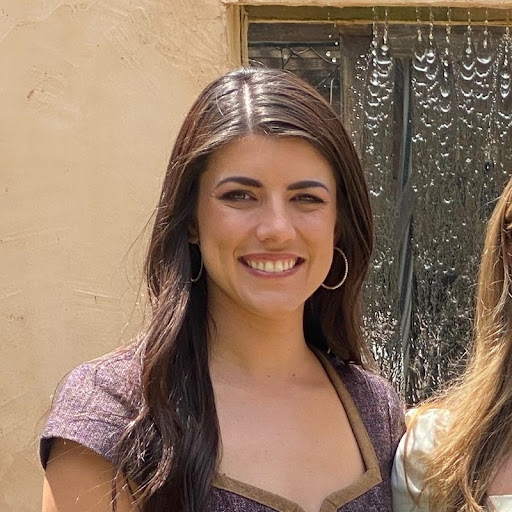
- EXPLORE Random Article
- Happiness Hub
How to Become a Tour Guide
Last Updated: August 6, 2023 Approved
This article was co-authored by Angela Rice . Angela Rice is a Luxury Travel Specialist and Co-Founder of Boutique Travel Advisors, a luxury travel advising business in Phoenix, Arizona. Angela specializes in consulting and curating highly customized and unique travel itineraries for clients seeking luxury, group, and multi-generational family travel. Angela studied at Arizona State University and The University of Iowa Tippie College of Business. She has prior consulting experience in accounting and business, which helps her run her business behind the scenes. Angela has been featured in The Washington Post, Reader's Digest, Travel Weekly, USA Today, Travel Market Report, Phoenix Magazine, and MSN. She is also a frequent guest on WBBM News Radio 105.9 FM's Travel Tuesday show. There are 7 references cited in this article, which can be found at the bottom of the page. wikiHow marks an article as reader-approved once it receives enough positive feedback. In this case, several readers have written to tell us that this article was helpful to them, earning it our reader-approved status. This article has been viewed 537,146 times.
Being a tour guide can be a great career option for people who love to travel, enjoy being in front of a crowd, and are masters of multitasking. If that’s you, then start looking for job opportunities online and in your area. You can improve your chances of getting hired by becoming professionally certified or getting a degree. Once you’ve found a job, be ready to meet the challenges of this fun and unique but sometimes hectic position.
Looking for Opportunities

- To get started, enter something like “Be a tour guide on a cruise ship to the Caribbean” into your favorite search engine. You can then browse through tour guiding jobs with different companies, job requirements, and salaries.

- You may need to space these tours out, as some could get expensive. Budget in one tour every two weeks or so. While you’re looking for jobs, go on tours instead of going out to eat or doing other fun activities.
- Invite friends and family to take tours with you. They’ll be able to share their likes and dislikes with you, which will help you be a better guide once you find a job.

- For more information and to find a list of associations located around the world, visit: http://www.beabetterguide.com/tour-guide-associations/ .

- Be aware that travel agents may tell you they love a certain company if the two are in a partnership together, even if they know the company has some issues. Be sure to do your own research by going online or visiting the company’s offices.

- You can also look online to see if the companies have open jobs, as many will list these positions on their websites.
- If you’re hoping to become a tour guide to travel, this might not be your favorite option. Remember that doing work locally can help you build your resume and gain experience while staying in your comfort zone. You can always keep looking for travel-oriented jobs while you’re working!
Getting Hired

- You can also look online to find details about the test, study guides, and registration information. Enter something like “Professional licensing examination for sightseeing guides in New York City” to find everything you need to prepare for and take the test.
- Take the exam seriously. If you fail, you’ll need to pay the fee again!

- Be sure to register for courses meant for tour guides rather than tour directors. Tour directors are responsible for logistics and management, while guides lead groups and provide narration about places the group visits.
- These programs are great for meeting people in the field. Your teachers, in particular, could connect you with people they know are looking for guides.

- Be sure you have the time and money to dedicate to the classes. If you’re currently working a full-time job, look into taking night classes.

- Most reputable companies will run a background check before hiring you.
- If they like your application, most companies will contact you for one to two follow-up interviews before hiring you.

- These questions could be things like, “What would you do if the bus broke down?” or “What makes you excited to be a tour guide with us?”

Meeting the Challenges

- You may want to schedule alone time during your days off to balance out your work schedule.

- Attendees will ask you questions that may be slightly off-topic. Knowing these answers will impress your audience and make you a better guide.
- If you don’t know the answer to a question, say so. Tell your audience you’re not sure, but that you’d love to know the answer and will be looking for it as soon as you can.

- You can always contact your company for assistance in these situations, but you’ll need to keep a cool head. You’re the leader of the group when you’re out on a tour, and they’ll look to you for guidance.

- This might be hard if you’re leading groups in beautiful and relaxing locations, but stay strong! You’re getting paid for this work.

- You also need to make sure that you and your group respects the environment you’re visiting. You’ll be responsible for enforcing the rules.
- Always face your audience when giving tours. [14] X Research source
Community Q&A
- If you are looking for a job in a country that has an official language you do not speak, you should learn the language by signing up for a course or using language learning software. Thanks Helpful 0 Not Helpful 0
- Take a training course on first aid and CPR. Depending on the job you land, this may not be necessary, but as a tour guide, you will need to know what to do in emergency situations. It’ll also look good on your resume. Thanks Helpful 0 Not Helpful 0
- Be aware that while you may be working in a vacation spot, you are not on vacation yourself. The majority of your time will be spent working. Thanks Helpful 40 Not Helpful 9
- As a tour guide, you may be working long hours. Your job may be in an exciting location, but you must make sure you are capable of working a difficult schedule. Thanks Helpful 5 Not Helpful 0
- Be aware that many tour guide jobs are seasonal. This may mean you will not have consistent work in one location. However, if you don't mind traveling, you can always travel back and forth between hemispheres. Thanks Helpful 0 Not Helpful 0
You Might Also Like

- ↑ http://www.academicinvest.com/arts-careers/linguistics-careers/how-to-become-a-tour-guide
- ↑ https://www.monster.com/career-advice/article/how-to-become-a-tour-guide
- ↑ http://www.beabetterguide.com/tour-guide-associations/
- ↑ http://intelligenttravel.nationalgeographic.com/2013/01/22/so-you-want-to-be-a-tour-guide-afitz/
- ↑ http://www.besthospitalitydegrees.com/how-to-become-a-tour-guide/
- ↑ http://learn.org/articles/How_Can_I_Become_a_Professional_Tour_Guide.html
- ↑ https://savingplaces.org/stories/10-tuesday-tips-good-tour-guide#.WV-TudPytol
About this article

If you want to become a tour guide, you should research opportunities in your area by searching online and visiting attractions where you might want to work. Depending on your city, you may need to pass an exam, so check out tour guide associations’ websites and search online to see if there are licensure requirements. If you can, take classes relevant to your field or class, or even pursue a degree in hospitality and tourism. If you can't go to school, apply to tour guide jobs that provide training. For more information about the application process and what you can expect as a tour guide, read on! Did this summary help you? Yes No
Reader Success Stories
Adrian Curea
Oct 30, 2017
Did this article help you?

Mahendra Jasani
Nov 13, 2017
Elizabeth Woughter
Aug 15, 2017
Kamlesh Kumar
Dec 10, 2016
Jitendra Singh
Jan 20, 2017

- About wikiHow
- Terms of Use
- Privacy Policy
- Do Not Sell or Share My Info
- Not Selling Info

Serving the Community College of Vermont & Vermont State University
Using the Libraries
Library tours.
Library Tours are available to introduce students and faculty to our on-campus libraries and library services. Library Tours are open to all students, staff, or faculty. An overview will be provided of library resources electronic and physical.
Off-campus users or anyone unable to make a tour should see our virtual library orientation sessions.
- << Previous: Library Orientation
- Next: Tutorials and Workshops >>
Related Information
- Library Orientation
- Tutorials and Workshops
- Locations & Hours
- Last Updated: Aug 21, 2024 3:59 PM
- URL: https://libraries.vsc.edu/using
- Car Rentals
- Airport Transfers
- Attractions & Tours
- Flight + Hotel
- Destinations
- Trip.com Rewards
【3% OFF】Europe Train Maps & Guide 2024

August 21, 2024
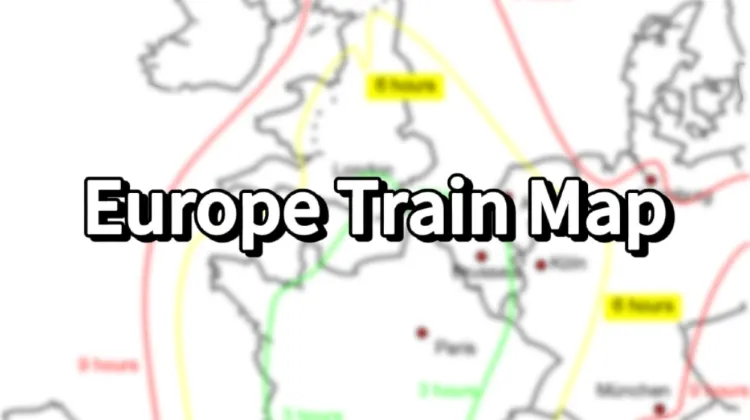
This Europe Train Map blog talks about the most popular European train map & routes. Check the five main types of rail services—high-speed, regional, cross-border, scenic, and night trains. Additionally, learn about the Europe Night Train Map✨👀 Grab the 3% Off coupon for Europe trains below!!!
🔥Exclusive Europe Train Coupon: Get 3% OFF Now!
Book European train tickets as a new user on Trip.com App and enjoy a special 3% Off 🎁! Use our exclusive coupon to save big on your first trip in Europe!!👀
Popular Europe Train Route Map

Source from Wikipedia
Let's check some of the most Popular Europe Train Routes and travel time below~ 👇🔥
*The price varies depending on the exchange rate and date.
5 Types of Europe Rail Lines

TGV (Source from interrail)
1. Cross-Border Rail Lines
Cross-border rail lines are crucial for connecting major European cities across different countries. Typically, you won't even realize when you've crossed a border due to the smooth transitions. However, occasional passport checks might occur on board, especially when traveling beyond the Schengen Area to regions in the south or east of Europe. These checks are generally quick, and you don't need to allocate extra time for them.

ICE (Germany) Restaurant (Source from interrail)
2. High-Speed Rail Lines
High-speed rail lines represent the pinnacle of European rail engineering, enabling passengers to travel between major cities at speeds that can rival or surpass air travel.
The Eurostar, for instance, is a prime example, linking London with cities like Paris, Brussels, and Amsterdam at speeds of up to 300 km/h via the High Speed 1 (HS1) line. The Eurostar, with its British-designed asynchronous AC drive system, differs from the TGV's synchronous drive technology, illustrating the diversity in high-speed rail engineering.
Moreover, while the Eurostar connects the UK with mainland Europe, the Jungfrau Railway holds the title for the highest rail line in Europe, winding its way to the Jungfraujoch at an altitude of 3,454 meters.

Source from CNN Travel
3. Night Trains
Night trains are a unique and efficient way to travel across Europe, offering the comfort of sleeping compartments and the convenience of waking up at your destination. These trains are a popular choice for budget-conscious travelers and those looking to maximize their travel time by avoiding daytime journeys.
Historically, night trains like the famous Orient Express have added a touch of luxury and mystery to European rail travel, inspiring countless novels and films.👀 Modern night trains continue this tradition by providing various levels of comfort, from simple couchettes to luxurious private cabins.

Regional train in Italy (Source from eurail)
4. Regional and Intercity Rail Lines
Regional and intercity rail lines form the backbone of Europe’s transportation network, connecting rural areas and smaller cities with major urban centers. These lines are indispensable for daily commuters and provide a vital service for tourists looking to explore lesser-known parts of Europe.
Unlike high-speed trains, these services often stop at smaller stations. Regional trains in countries like Germany (S-Bahn) and France (TER) are known for their reliability and frequent services, making them a preferred choice for short-distance travel.

5. Scenic & Tourist Rail Lines
Scenic and tourist rail lines offer travelers a unique way to experience Europe’s natural beauty and historical sites from the comfort of a train. These routes are often slow-paced, allowing passengers to fully immerse themselves in the landscapes.
The Glacier Express is known as the " slowest express train in the world ," taking around 8 hours to cover 291 km, but every minute offers stunning views of the Swiss Alps. These trains are popular among tourists, photographers, and nature enthusiasts who want to enjoy the journey as much as the destination.
5 Countries Connected by Europe Train: Map & Routes
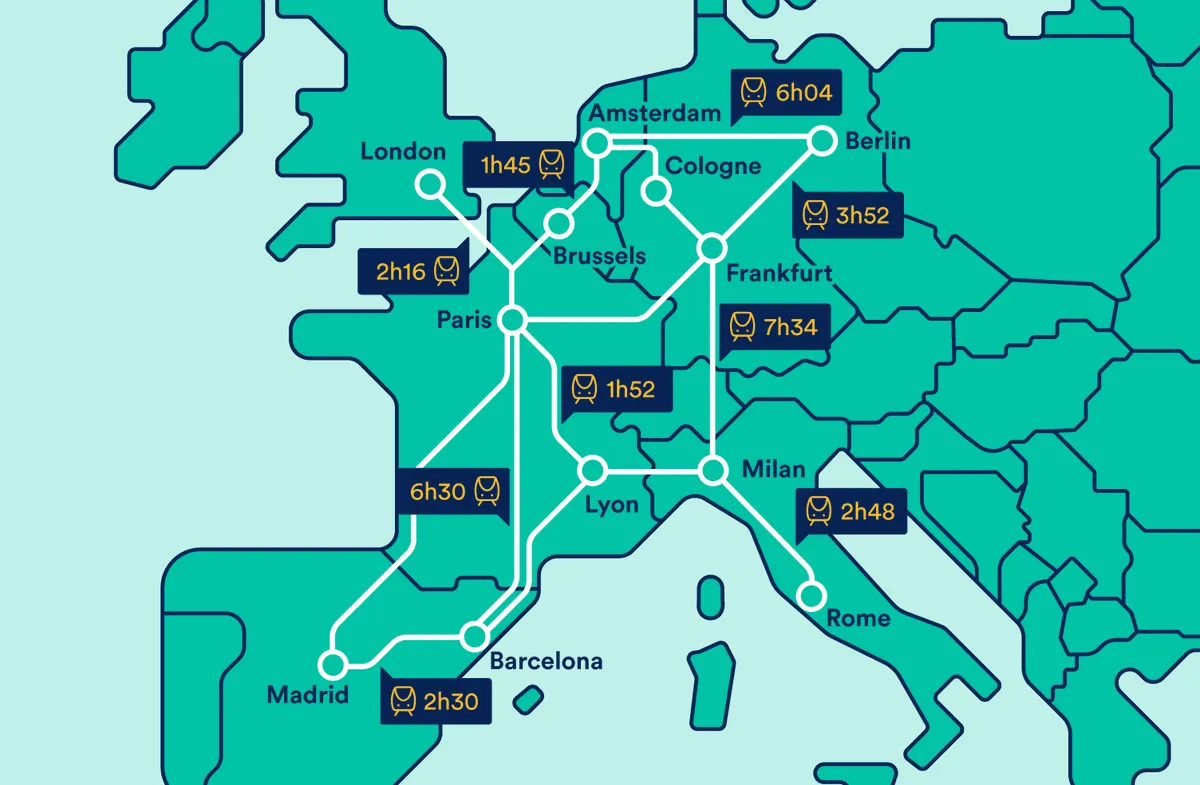
Source from Laracon EU on X
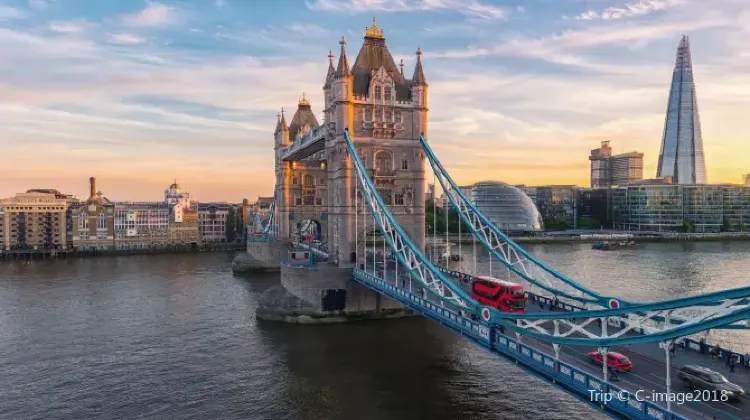
Europe Train in the UK
The United Kingdom is well-connected to mainland Europe by the Eurostar , a high-speed train service that links London with Paris, Brussels, and Amsterdam. The Eurostar travels through the Channel Tunnel, which is the longest undersea tunnel in the world. The UK’s domestic rail network is extensive, with services like the Great Western Railway (GWR) and Avanti West Coast offering both high-speed and regional routes. Night trains, such as the Caledonian Sleeper, provide an overnight travel option between London and Scotland.
- Eurostar: Operates at speeds up to 300 km/h, connecting London with cities in France, Belgium, and the Netherlands.
- Great Western Railway (GWR): Connects London to the South West and Wales, with a maximum speed of 200 km/h.
- Avanti West Coast: Serves routes between London, Manchester, and Scotland, with speeds up to 200 km/h.
- Caledonian Sleeper: A night train service connecting London with Edinburgh, Glasgow, and Inverness.

Europe Train in France
France’s rail network is renowned for its efficiency and speed, with the TGV (Train à Grande Vitesse) being the crown jewel. The TGV connects Paris with major cities like Lyon, Marseille, and Nice at speeds up to 320 km/h. The network also includes the Thalys and Eurostar services, linking France to neighboring countries. Regional trains like the TER (Transport Express Régional) provide extensive coverage across the country. Night trains, such as the Intercités de Nuit, offer overnight journeys between key cities.
- TGV: Connects Paris with other French cities and European destinations, operating at speeds up to 320 km/h.
- TER: Regional trains that connect smaller towns and cities across France, with a focus on local connectivity.
- Intercités de Nuit: Night trains offering overnight services between Paris and cities like Nice and Toulouse.
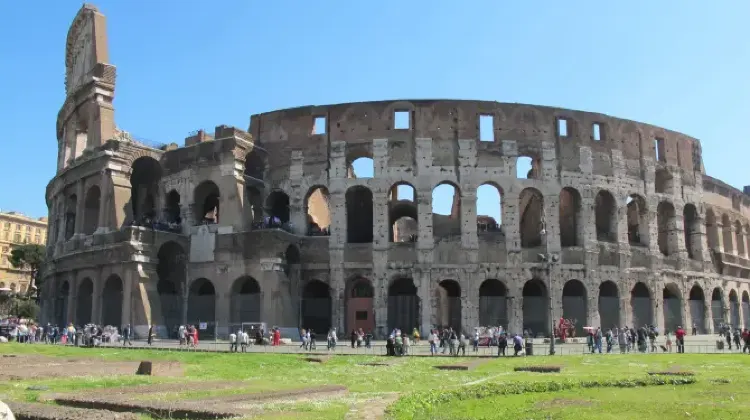
Europe Train in Italy
Italy’s train system is one of the most extensive in Europe, with the high-speed Frecciarossa trains operated by Trenitalia. These trains connect major cities such as Rome, Milan, and Florence at speeds of up to 300 km/h. Italy also offers Intercity and Regionale services, which connect smaller towns and provide scenic routes through the countryside. Night trains, such as the Intercity Notte, offer overnight services between key cities, allowing travelers to maximize their time.
- Frecciarossa: High-speed service connecting major Italian cities at up to 300 km/h.
- Regionale: Regional trains serving rural and suburban areas, slower but essential for local travel.
- Intercity Notte: Night trains offering overnight travel between major cities like Rome and Milan.

Europe Train in Germany
Germany’s rail network is highly efficient, with high-speed ICE trains connecting major cities such as Berlin, Munich, and Frankfurt. These trains operate at speeds of up to 300 km/h, making travel fast and convenient. Germany also offers regional trains like the RegionalBahn for local travel.
- ICE (InterCity Express): High-speed service connecting major German cities, operating at up to 300 km/h.
- RegionalBahn: Regional trains providing comprehensive coverage across smaller towns and rural areas.
Night Train Map in Europe

Source from projectmapping
Night trains in Europe have become a convenient and eco-friendly alternative to air travel, allowing you to travel overnight between cities while saving time and hotel costs.
Night trains offer various amenities, from private sleeper cabins to shared couchettes, and many routes include dining cars, Wi-Fi, and even en-suite bathrooms in deluxe compartments.
Booking tickets in advance is recommended, especially during peak travel seasons, as night trains are increasingly popular across Europe. Now check Europe Night Train Map & Services👇👇👇
Major Night Train Routes in Europe
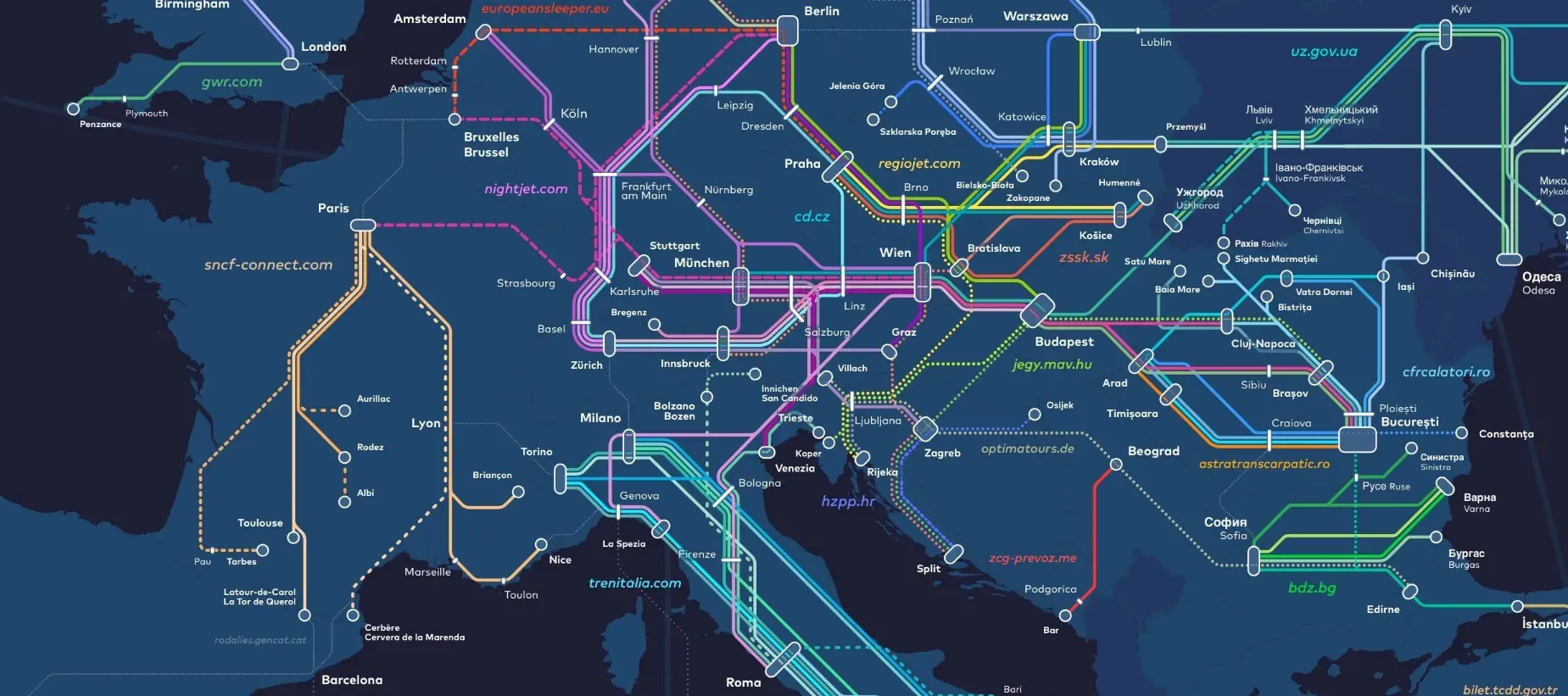
Western Europe
Western Europe is home to some of the most comfortable and modern night train services, primarily operated by ÖBB Nightjet . These trains connect major cities with options ranging from standard couchettes to luxurious private sleepers. Routes like Paris to Vienna and Zurich to Berlin are popular for their efficiency and comfort, often with amenities such as dining cars and Wi-Fi.
- Countries: France, Germany, Switzerland, Austria, Belgium, the Netherlands
- Key Routes: Paris to Vienna, Zurich to Berlin, Brussels to Vienna

Central Europe
Central Europe’s night trains are essential for connecting cities across borders. The region’s routes often include stops in multiple countries, offering travelers a convenient way to explore Eastern and Central Europe. Trains are well-equipped with comfortable sleeping options, making overnight travel between cities like Vienna, Prague, and Budapest both practical and pleasant.
- Countries: Austria, Czech Republic, Hungary, Poland, Slovakia
- Key Routes: Vienna to Budapest, Prague to Krakow, Budapest to Berlin

Northern Europe
Northern Europe’s night trains are known for their scenic routes, particularly the Stockholm to Berlin service operated by Snälltåget, which includes a ferry crossing over the Baltic Sea. In Norway, the Oslo to Bergen route is famous for its breathtaking landscapes. These night trains provide a unique travel experience, combining convenience with the beauty of the Nordic countries.
- Countries: Sweden, Denmark, Norway
- Key Routes: Stockholm to Berlin, Copenhagen to Hamburg, Oslo to Bergen
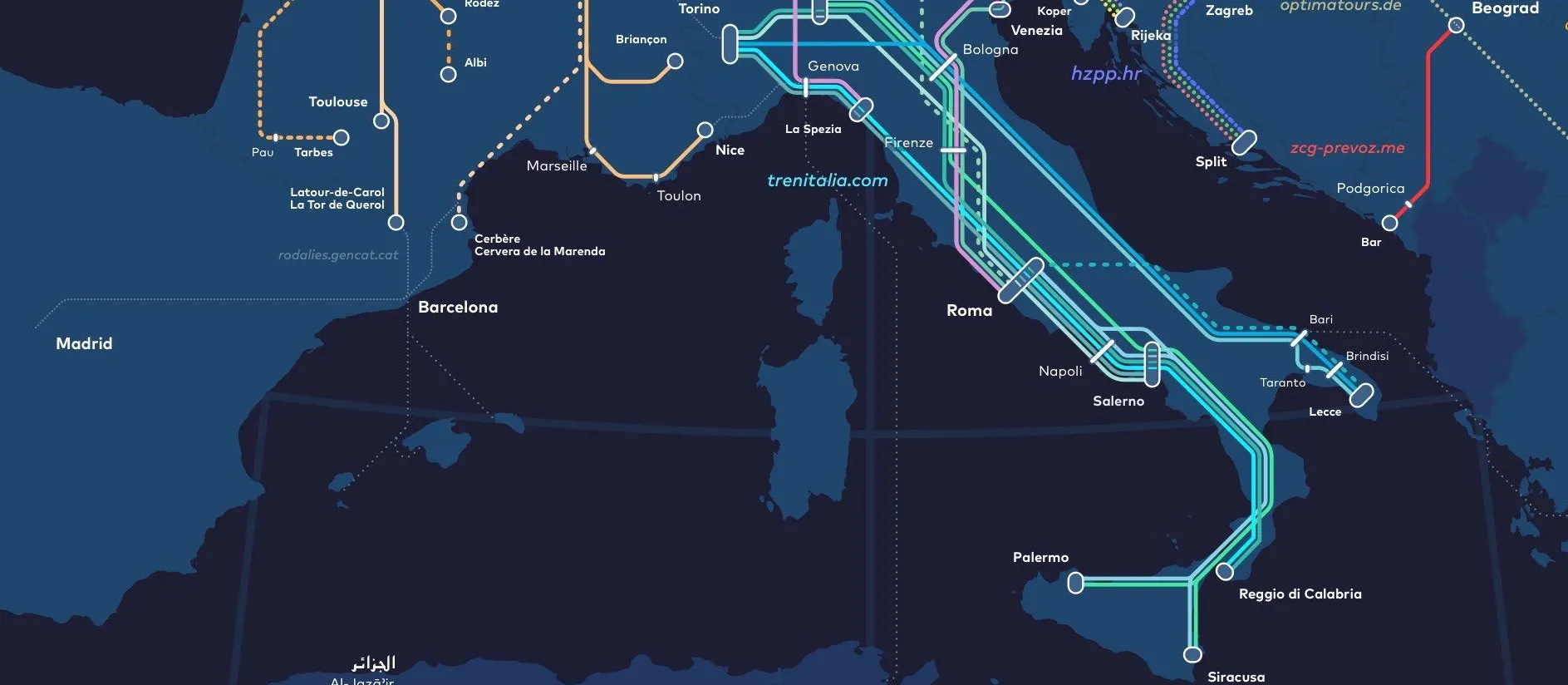
Southern Europe
Southern Europe’s night trains cater to tourists and locals alike, connecting major cities with coastal and mountainous regions. Renfe Trenhotel operates luxurious night trains in Spain and Portugal, such as the Lisbon to Madrid route, known for its premium sleeper cabins and onboard dining. Italy’s Intercity Notte offers connections between Rome and Sicily, including a ferry crossing to Palermo.
- Countries: Italy, Spain, Portugal
- Key Routes: Rome to Palermo, Barcelona to Madrid, Lisbon to Madrid

Eastern Europe
Night trains in Eastern Europe are crucial for connecting vast distances across the region. These services often provide a more traditional travel experience, with simple yet comfortable couchettes. Routes like Warsaw to Kiev and Bucharest to Sofia are popular among budget travelers and those exploring less-touristed parts of Europe. Despite their more basic amenities, these trains remain an essential part of the region’s transport network.
- Countries: Poland, Romania, Bulgaria, Ukraine
- Key Routes: Warsaw to Kiev, Bucharest to Sofia, Krakow to Lviv
Top Cities You can go with Europe Train
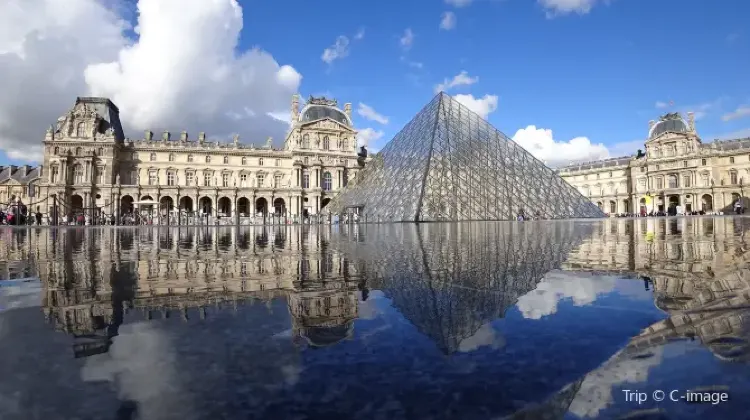
Paris, France
Paris, often called the "City of Light," is not only the capital of France but also a global center for art, fashion, and culture. Easily accessible by the TGV and Eurostar , Paris is a hub for train travel, connecting with major European cities like London and Brussels. Check the best things to do in Paris 👇👇👇
- Louvre Museum : Originally a fortress, then a royal palace, the Louvre Museum is now the world’s largest art museum, housing thousands of works including the Mona Lisa. Its transformation over centuries reflects the rich history of France itself.
- 🕒 Operating Hours: Monday, Thursday, Saturday, Sunday from 9:00 AM to 6:00 PM; Wednesday, Friday from 9:00 AM to 9:45 PM; Closed on Tuesdays.
- 📍 Location: Rue de Rivoli, 75001 Paris, France.

- Arc de Triomphe : Commissioned by Napoleon after his victory at Austerlitz, the Arc de Triomphe is a monument that honors those who fought for France during the French Revolutionary and Napoleonic Wars. Standing at the top of the Champs-Élysées, it offers visitors a chance to climb to the top for a panoramic view of Paris.
- 🕒 Operating Hours: Daily from 10:00 AM to 10:30 PM.
- 📍 Location: Place Charles de Gaulle, 75008 Paris, France.
Best Hotels in Paris
Jinhua marriott hotel, narada·jinhua hotel, wanda realm jinhua, pullman jinhua, international landison plaza hotel jinhua, business travel, jundu boutique hotel (jinhua city government), relax hotel, yearns hotel, jinhua staple hotel, zhejiang provincial federation of trade unions shuanglong workers sanatorium, family friendly, best western world trade hotel, wu shan boutique bed and breakfast, shanhai yunsu hotel, jingshangyuehua hotel, maison new century hotel wucheng jinhua, shilily hidden world beishan villa resort, wuyi jingyuan die lai wangjing hot spring hotel, meilinge hot spring international hotel (wuyi hot spring south road branch), grand house hot spring wuyi, shuanglong dongtianfudi hotel, boyi yuetu hotel, the zan hotel (jinhua jiangnan yintai administrative service center), jincheng international hotel, jinyi jinglan jia, jinhua jinhu guanlan hotel (aquatic center), tingquan meiyu hotel (jinhua vocational and technical college), jinjiang inn (jinhua heart store), manju hotel (jinhua high speed railway station, yintai), zhuwu hostel, wufeng concept hotel.
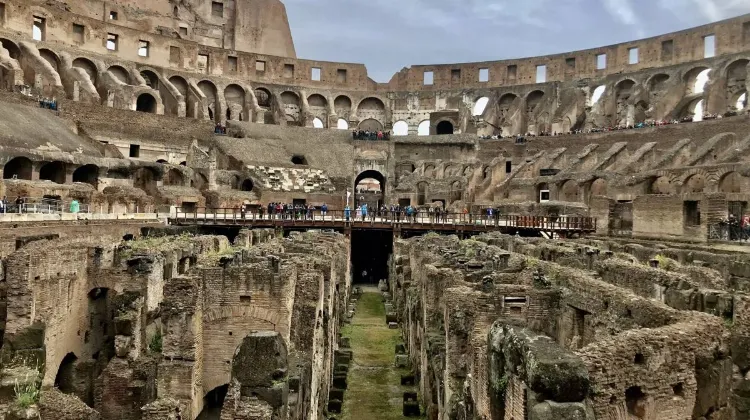
Rome, Italy
Rome, the capital of Italy, is a city where ancient history meets modern life. The city is well-connected by the Frecciarossa high-speed trains, making it easy to travel from other major Italian cities like Florence and Milan. The Colosseum, Rome’s most famous landmark, is one of the New Seven Wonders of the World. Visitors often wonder whether they need a guided tour to fully appreciate it.
- Colosseum : This massive amphitheater was once the site of gladiatorial battles and public spectacles. Built nearly 2,000 years ago, it remains one of the best-preserved structures from ancient Rome. The Colosseum could hold up to 80,000 spectators, highlighting the grandeur of the Roman Empire.
- 🕒 Operating Hours: Daily from 8:30 AM to 4:30 PM (seasonal variations apply).
- 📍 Location: Piazza del Colosseo, 1, 00184 Rome RM, Italy.
Best Hotels in Rome
Nagaworld hotel & entertainment complex, palace gate hotel & resort by ehm, rosewood phnom penh, hyatt regency phnom penh, tian yi international hotel, hm grand central hotel, the snowbell hotel, aurea central hotel, luxcity hotel & apartment, the bridge club, sim boutique hotel, lcs hotel & apartment, okay boutique hotel, phnom penh 51 hotel, city lodge hotel, anik boutique hotel & spa on norodom blvd, arthur & paul (men only hotel), sokha phnom penh residence, azumaya hotel phnom penh, sun & moon, urban hotel, baitong hotel & resort, marco polo hotel, g mekong hotel, phnom penh katari hotel, the peninsula phnom penh, orussey binke hotel, lavanya boutique hotel, le botum hotel, teng xi hotel.

Barcelona, Spain
Barcelona is easily accessible by Spain’s AVE high-speed trains, which connect Barcelona with Madrid and other major Spanish cities. Gaudí’s architectural masterpieces, like the Sagrada Familia, are among the top attractions in Barcelona.
- Sagrada Familia : Designed by Antoni Gaudí, the Sagrada Familia is a basilica that has been under construction since 1882. Its unique architecture draws millions of visitors each year, and it is expected to be completed by 2026, marking the centenary of Gaudí's death.
- 🕒 Operating Hours: Daily from 9:00 AM to 8:00 PM.
- 📍 Location: Carrer de Mallorca, 401, 08013 Barcelona, Spain.
- Casa Batlló : Another of Gaudí’s masterpieces, Casa Batlló is famous for its dragon-inspired roof and vibrant facade. The building is one of the most distinctive examples of Modernisme in Barcelona.
- 📍 Location: Passeig de Gràcia, 43, 08007 Barcelona, Spain.
Occidental Diagonal 414
Check Availability
FAQs about Europe Train Map
How can i see all of europe by train, can i travel by train between european countries, what parts of europe are connected by trains, how many european countries are connected by train.
Europe Train Map Guide
- ● Popular Europe Train Route Map
- ● 5 Types of Europe Rail Lines
- ● 5 Countries Connected by Europe Train: Map & Routes
- ● Night Train Map in Europe
- ● Top Cities You can go with Europe Train
<h3>Trending Searches</h3>
More about China Trains
- China Train Ticket
- Nanjing Train Station
- Daegu to Seoul
- China Train Ticket Price
- China High Speed Rail Hangzhou to Beijing
- Cheap Train Tickets China
- KTX Train Map
- China Bullet Train
- China High Speed Rail
- KTX Booking
- KTX schedule
- Beijing Train Station
- Xian Train Station
- China Train Booking
- China Train
- Shanghai Train Station
- Busan to Seoul
- Customer Support
- Service Guarantee
- More Service Info
- About Trip.com
- Terms & Conditions
- Privacy Statement
- About Trip.com Group
Other Services
- Investor Relations
- Affiliate Program
- List Your Property
- Become a Supplier

IMAGES
COMMENTS
Leading guided tours of specific landmarks, neighborhoods, or attractions. Providing historical and cultural insights. Assisting with language translation, if applicable. Answering questions and providing recommendations. 2. Adventure Tour Guides. Adventure tour guides are experts in outdoor activities and adventure sports.
Historical tour guides are the time-travellers of the tourism industry. They weave narratives that transport visitors back in time, breathing life into ancient monuments, historic streets, and legendary landmarks. As a historical storyteller, you get to be the bridge between the past and the present, sharing tales that captivate and educate.
There are many kinds of tour guides around the world; some of the most popular categories of guides include: 1. The professional tour guide. The professional tour guide is the most common type of tour guide, and it's the primary type most people think of when thinking about a tour guide. It's usually a full-time job, but it can also be part ...
Identifying Types of Tours and Guides Understanding Different Types of Tours. With a rich variety of tours to choose, it's crucial to first identify the type that suits your preferences and interests. The different types of tours largely accommodate diverse individual tastes and can typically be categorized into several types.
While the exact categorization may vary, here are some common types of tour guides: 1. City Guide: Unveiling Urban Treasures. When exploring a new city, there's no better companion than a city guide. Whether on foot, bicycle, or bus, these guides possess an intimate knowledge of their urban domain. They go beyond what guidebooks can provide ...
Here are some common types of tour guides and a brief description of what they do: City Tour Guides: City tour guides specialize in providing tours within a specific city or urban area. They are well-versed in the history, architecture, landmarks, and culture of the city. Their role is to guide tourists through popular attractions, historical ...
Definition, Types and Salary. Working as a tour guide can be a great way to meet new people, travel, share incredible experiences and learn more about a culture or place. Becoming a guide is often an educational and rewarding experience. There are many guiding opportunities available that can suit a variety of interests and skill sets.
They should be knowledgeable about the history, culture, landmarks, and other significant aspects of the place. Tour guides should be able to answer questions, share interesting facts, and engage their guests in informative discussions. 2. Interpreter: Tour guides bridge the gap between different cultures and languages.
Here's What to Know About Tour Guides. First, let's make some distinctions because there are different types of tour guides. On a multi-day package tour, there is typically a tour director or ...
Definition, Types and Salary Examples of tour guide skills The most successful tour guides possess a diverse set of skills, both hard and soft. Important skills to develop as a tour guide include: Confidence Working as a tour guide often requires speaking for extended periods without interruption, potentially for sizeable groups.
Tour guides must be able to lead a group of people without being condescending, snobby, or aggressive. If something unexpected happens on the tour, a good tour guide will be able to take charge in an assertive manner to ensure that all customers receive the right directions. 9. A good sense of humor.
Park guides are people who conduct nature and sightseeing tours. They help explore state and national parks, nature reserves, and so on. In the U.S., they are usually employed by the National Park Service. Due to the level of responsibility, becoming a park guide may require a certain level of training and expertise.
Special Interest Travel Guide. While a destination guide focuses on a specific area and includes as much detail as possible, a special interest travel guide is far more focused. This is a type of niche writing, and it is designed to appeal to a specific demographic. Ultimately, the special interest you focus on is up to you.
Here are the steps to becoming a licensed tour guide: 1. Determine if you actually want to be a tour guide. Getting paid to travel and visit fascinating sites can be enticing, but it's important to have realistic expectations. Becoming a tour leader does not mean that you get a permanent vacation.
A tour guide (U.S.) or a tourist guide (European) is a person who provides assistance, and information on cultural, historical and contemporary heritage to people on organized sightseeing and individual clients at educational establishments, religious and historical sites such as; museums, and at various venues of tourist attraction resorts. [1]
Here is a detailed guide on how to pursue a career as a tour guide: Obtain a High School Diploma: Start by completing your high school education or its equivalent. A strong foundation in subjects such as history, geography, languages, and communication will be beneficial in your future career as a tour guide. Choose a Specialization: Decide on ...
Everyone will have a richer experience, and you can potentially incorporate this information into future tours. 5. Avoid exaggerating information. You want your tours exciting and engaging, but you also want to be known as a credible and knowledgeable expert. Therefore, resist the urge to exaggerate information.
On our most popular Signature tours, the maximum group size never exceeds 24, and the average is more like 18 - 20 for a small group experience. Some of our Handpicked tours have a higher group size of up to 45 - 50. These are typically coach tours in destinations such as Italy (though we do have small group tours here too!) and Greece.
10 Great Tour Guides. A native of Puglia, Strippoli is a font of Italian history. In the off-season, he focuses on his culinary and sommelier studies. He is a multisport guide for Backroads. "A ...
Find, compare, and book sightseeing tours, attractions, excursions, things to do and fun activities from around the world. Save money and book directly from local suppliers.
Tour guides' primary duty is to lead groups, making it a great position for developing strong leadership skills. Tour guides use leadership skills to organize, facilitate and lead groups. This can help them become strong, effective leaders, which is often a beneficial skill to have in your career. 11. Career exploration.
The difference between these two kinds of trusts is that a living trust is effective while the grantor is alive, and a testamentary trust only becomes effective after the grantor's death. Revocable vs. irrevocable living trusts. A revocable living trust is one where the grantor retains the right to modify, amend, revoke, or terminate the trust.
There are two easy ways to find the best tours…Option 1 is to identify your interest area and search for a tour that fits your interest. Option 2 is to use a search engine or popular tour guide website to see what's available and then choose from the list. In any case, these are some top places to find and then book a tour:
1. Embrace being around people when you're working. Being a tour guide means you need to be a people person. Be prepared to answer questions constantly, handle difficult personalities, and herd groups of people around interesting sites and locations. You'll need to be cheerful and upbeat whenever you're on the job.
Tour guiding skills are techniques that individuals use when giving a guided tour to an audience. Tour guides often use their skills in historical landmarks, museums, parks, resorts and cities, helping travelers and guests learn more about the location they're visiting and answering any of their questions. They can also give different types of ...
Library Tours are available to introduce students and faculty to our on-campus libraries and library services. Library Tours are open to all students, staff, or faculty. An overview will be provided of library resources electronic and physical. Off-campus users or anyone unable to make a tour should see our virtual library orientation sessions.
High-speed rail lines represent the pinnacle of European rail engineering, enabling passengers to travel between major cities at speeds that can rival or surpass air travel. The Eurostar, for instance, is a prime example, linking London with cities like Paris, Brussels, and Amsterdam at speeds of up to 300 km/h via the High Speed 1 (HS1) line.